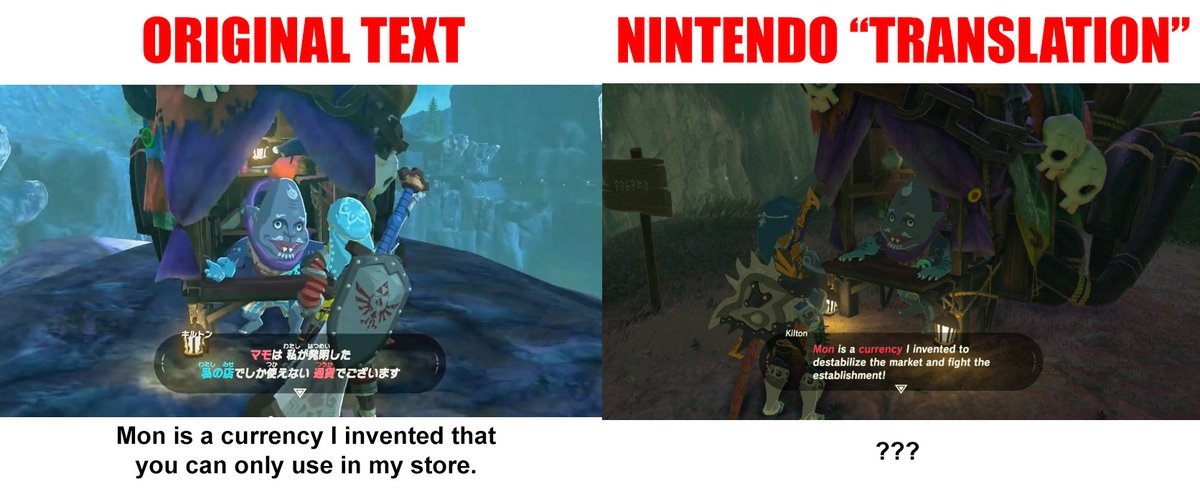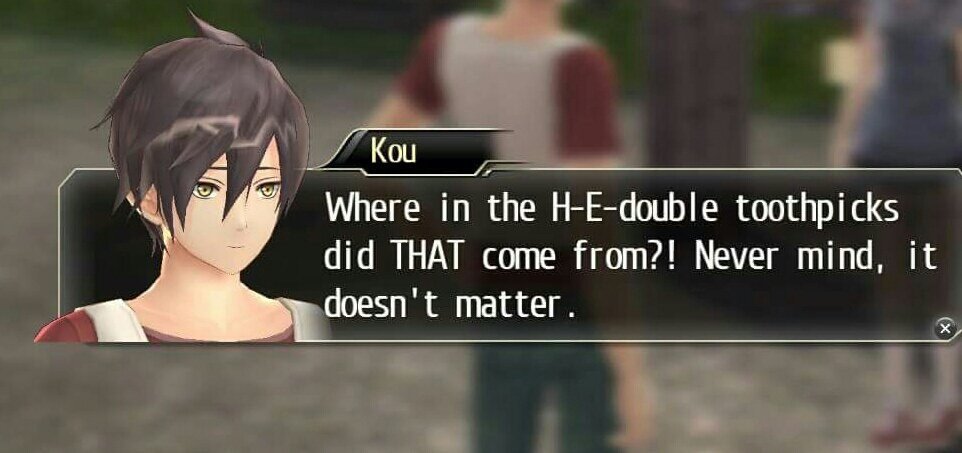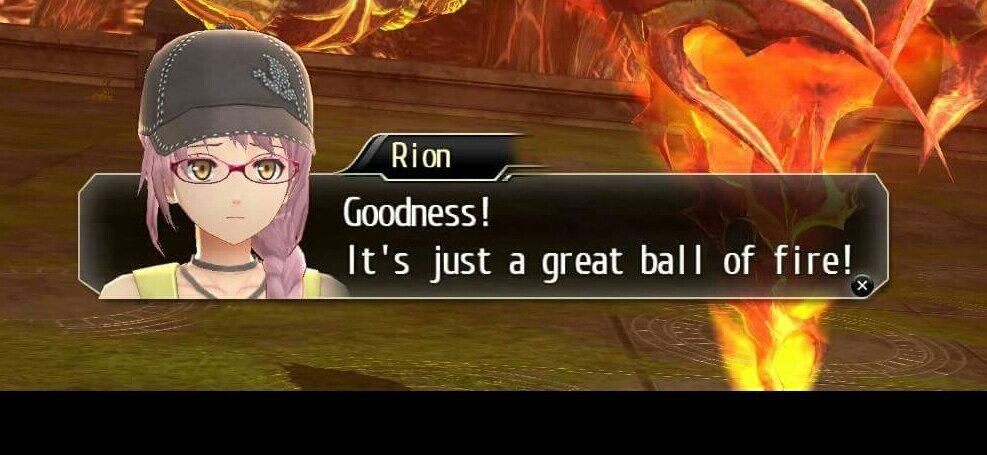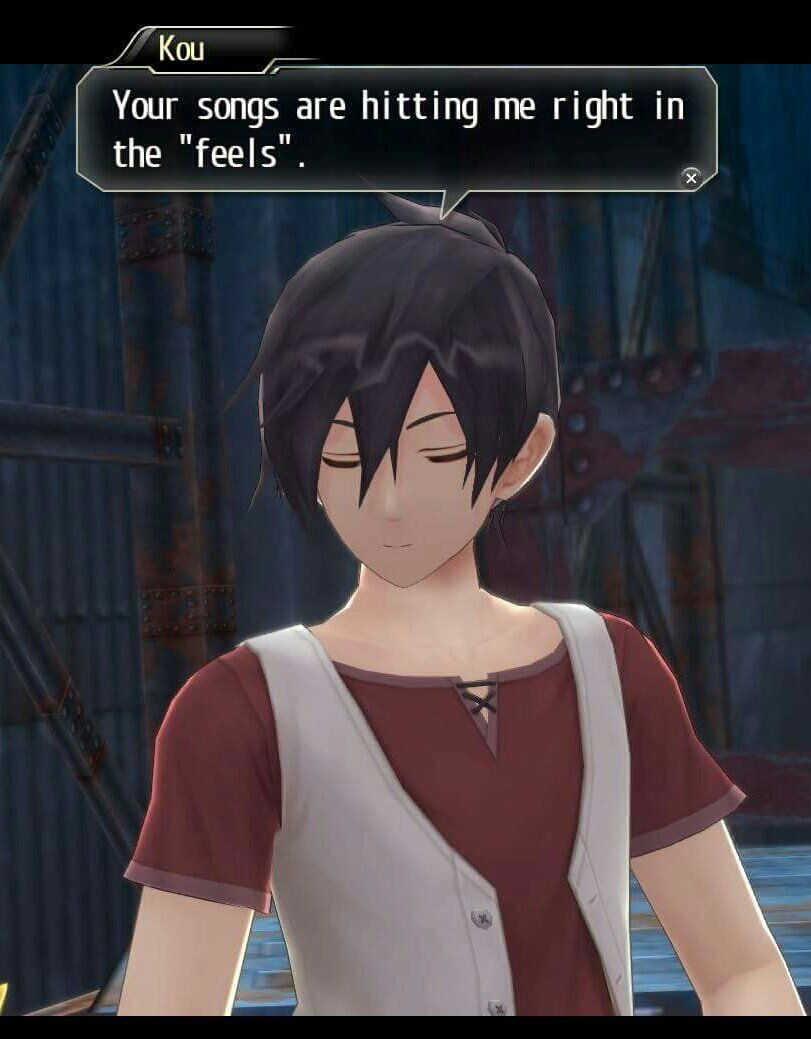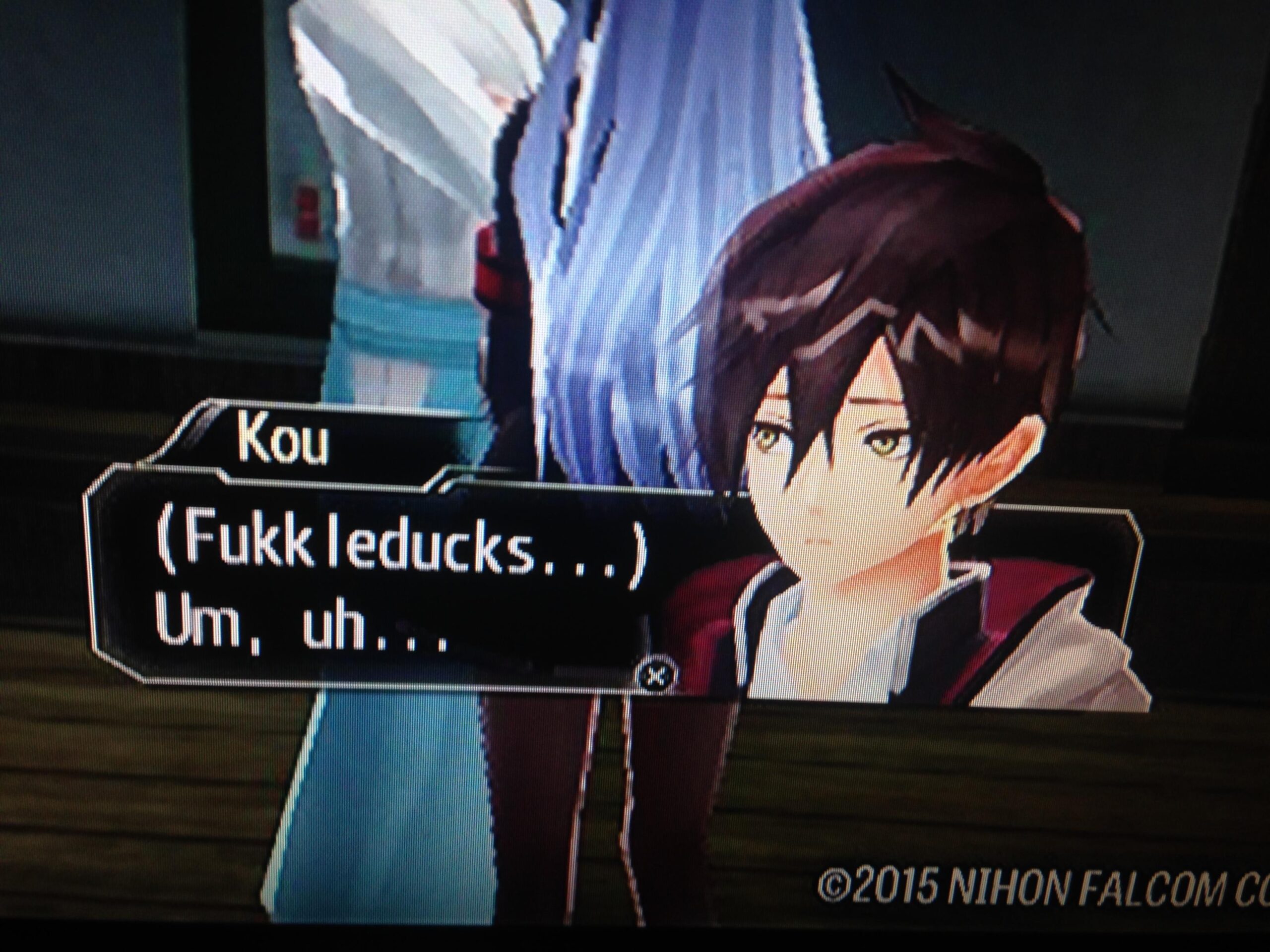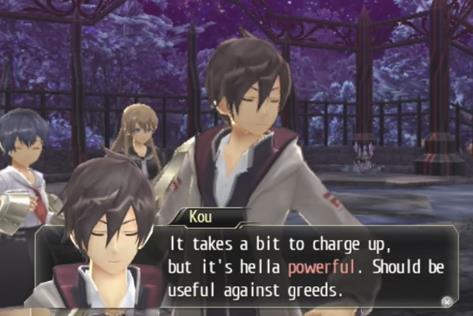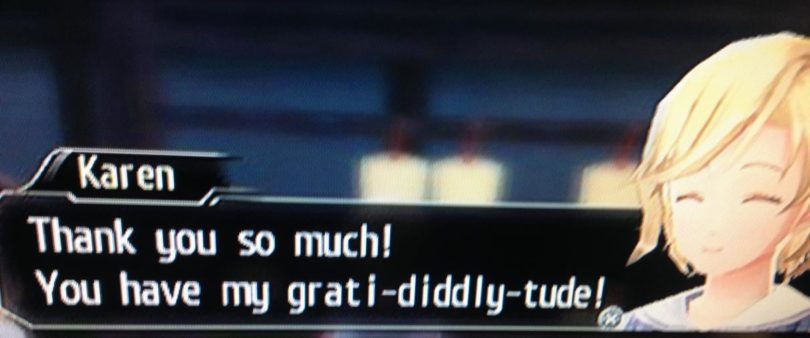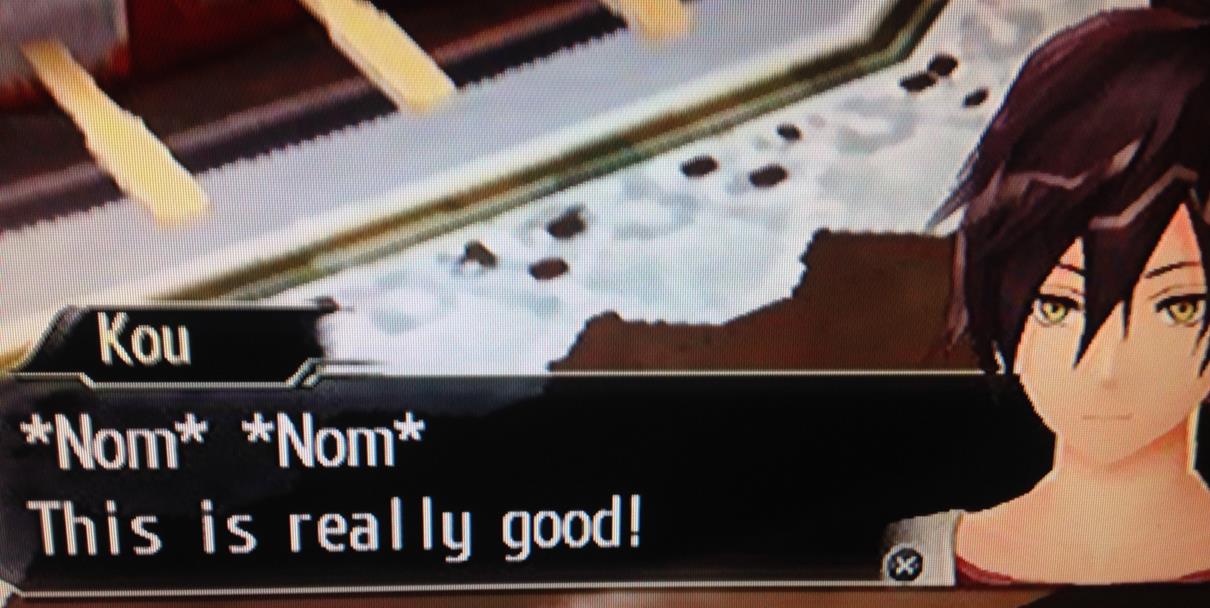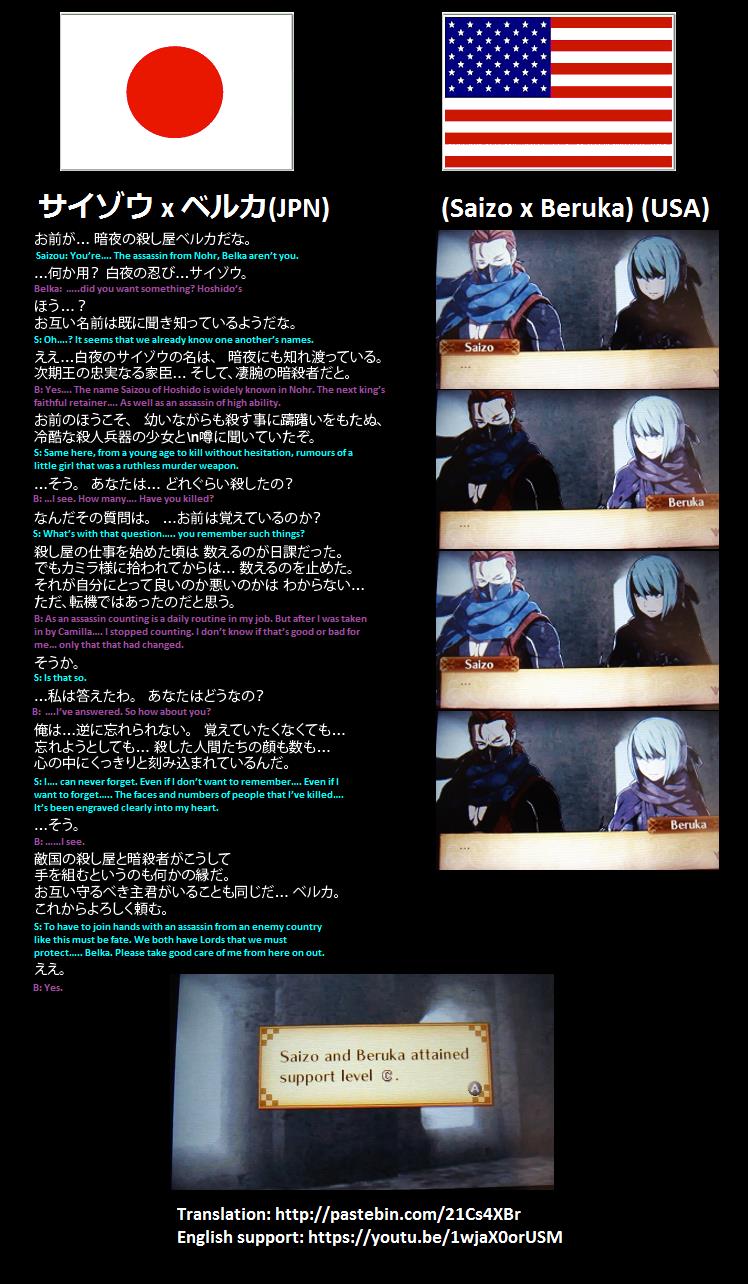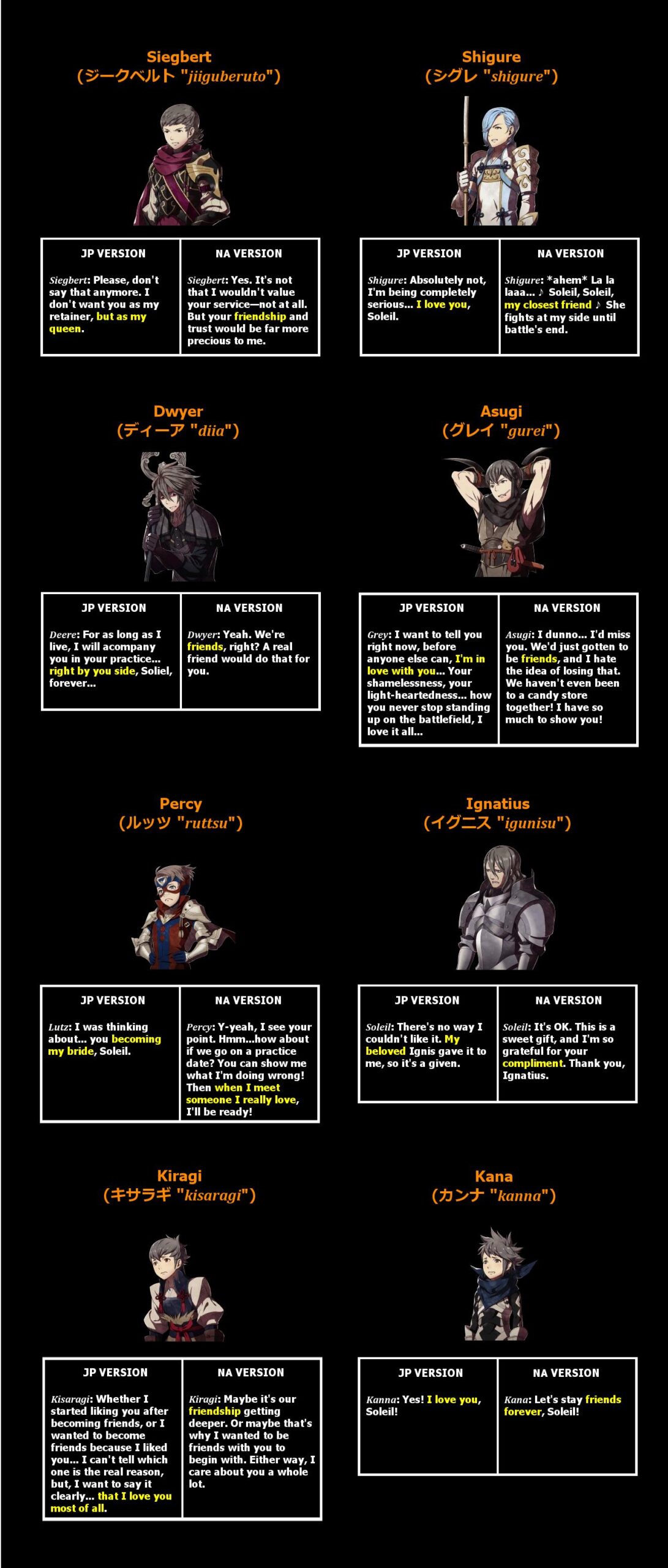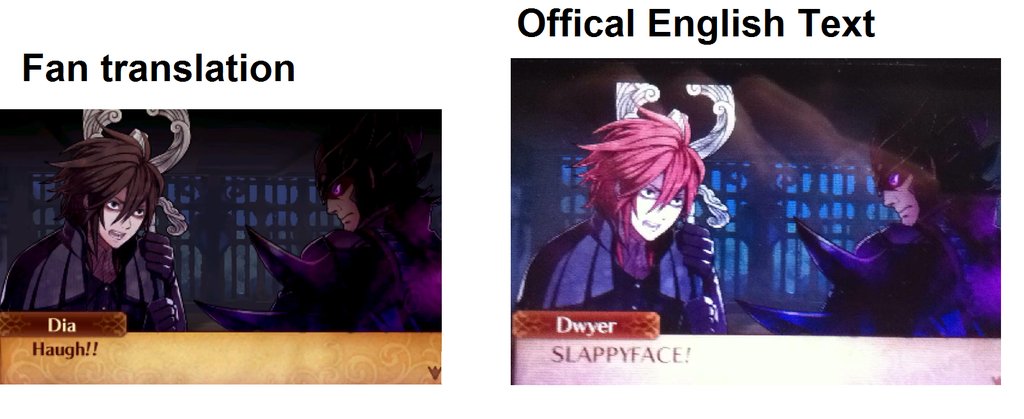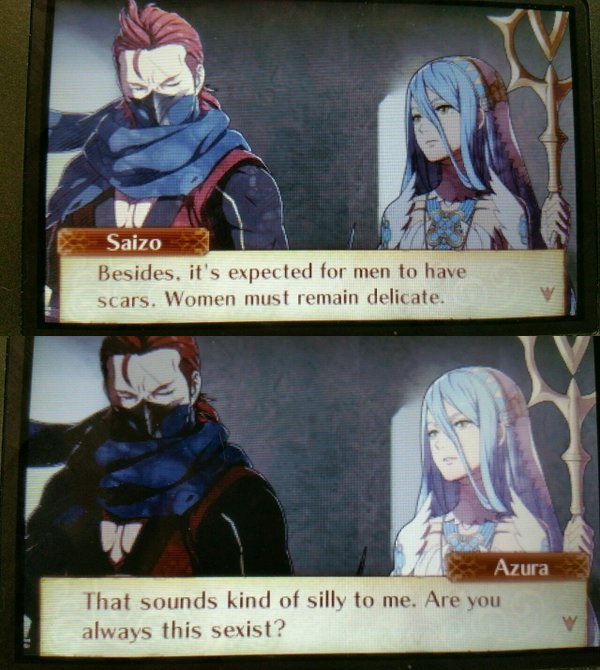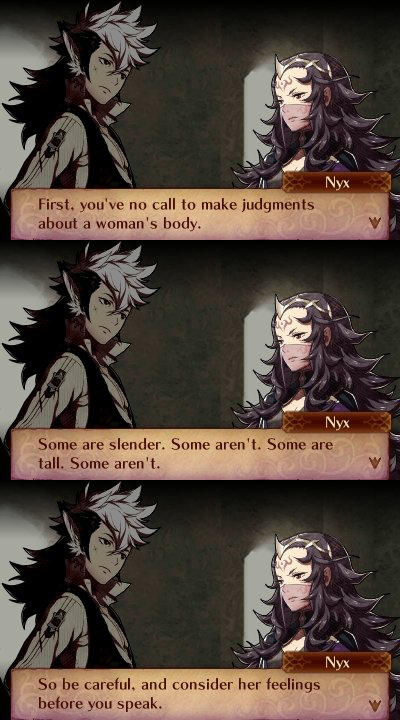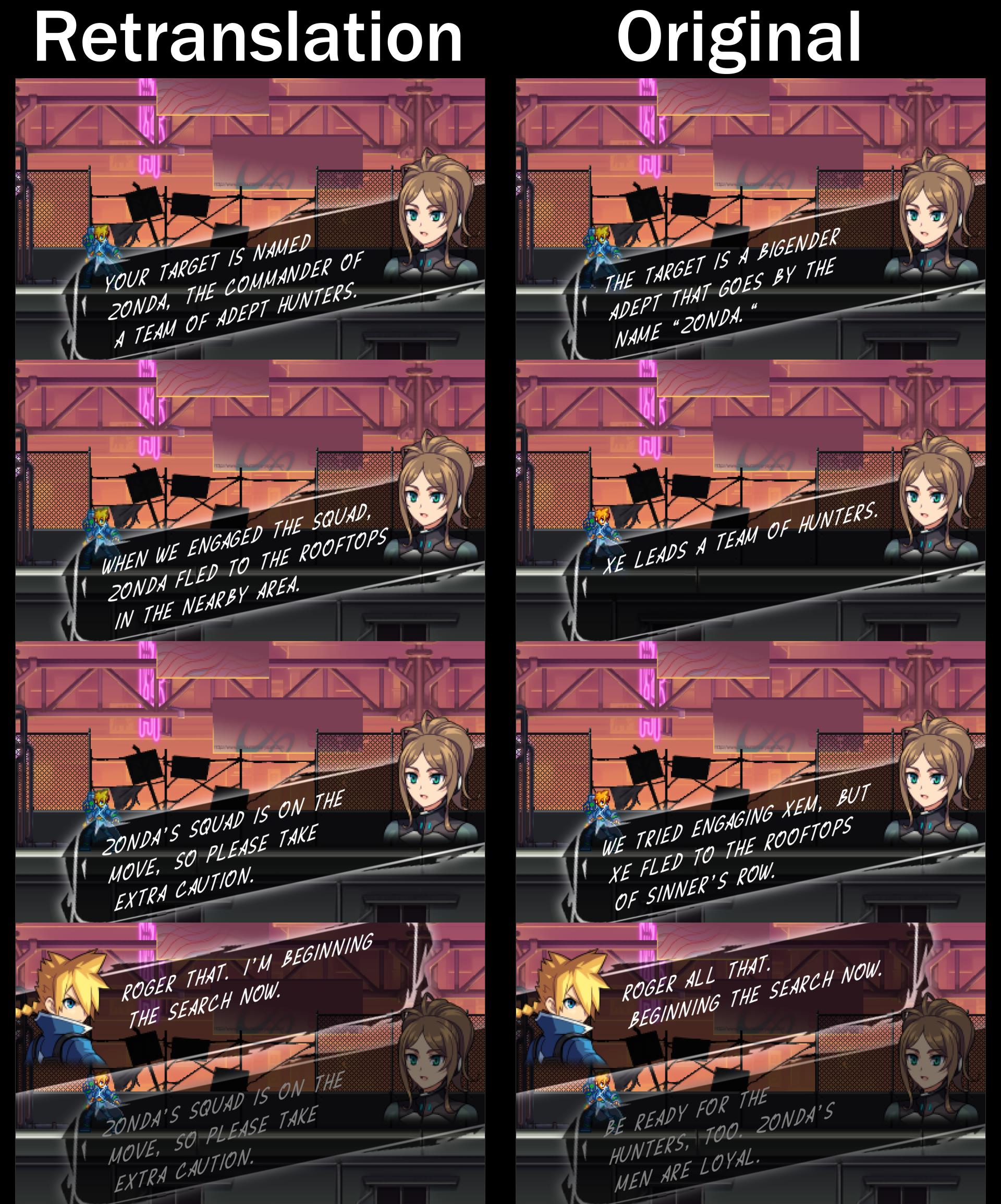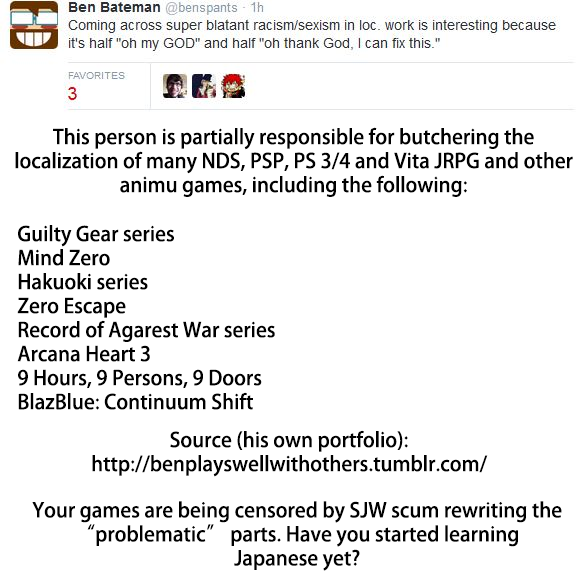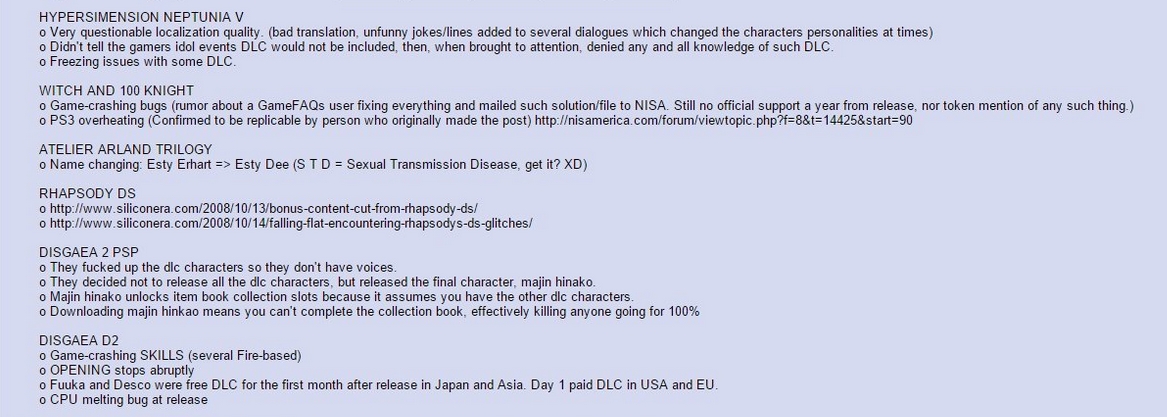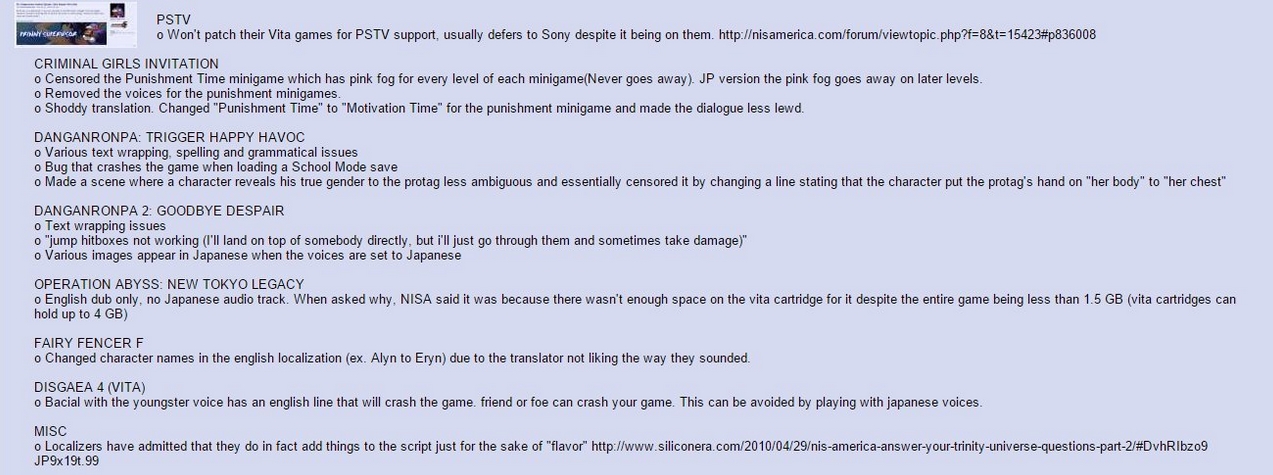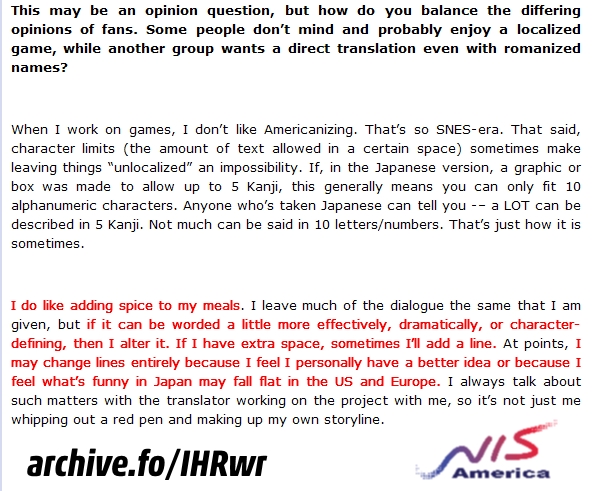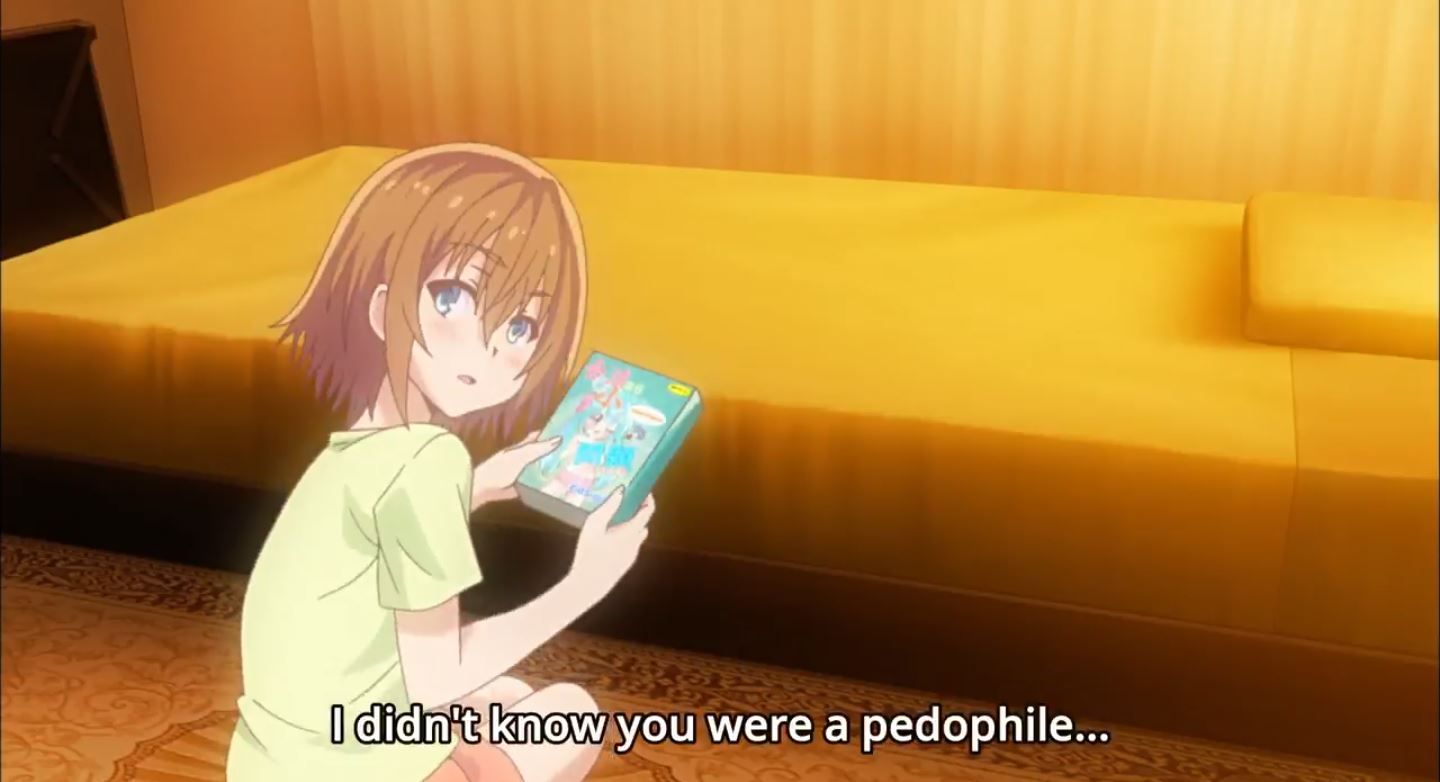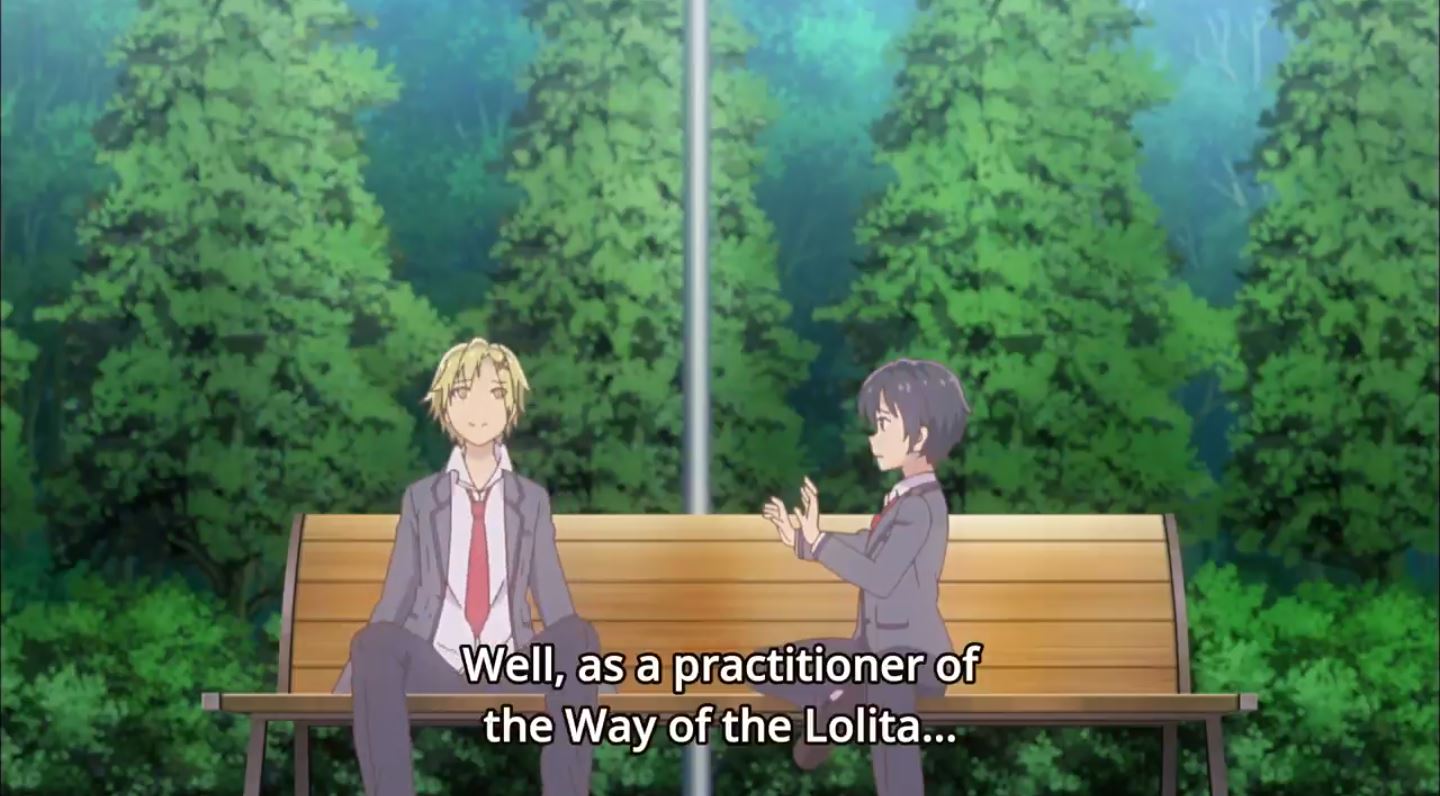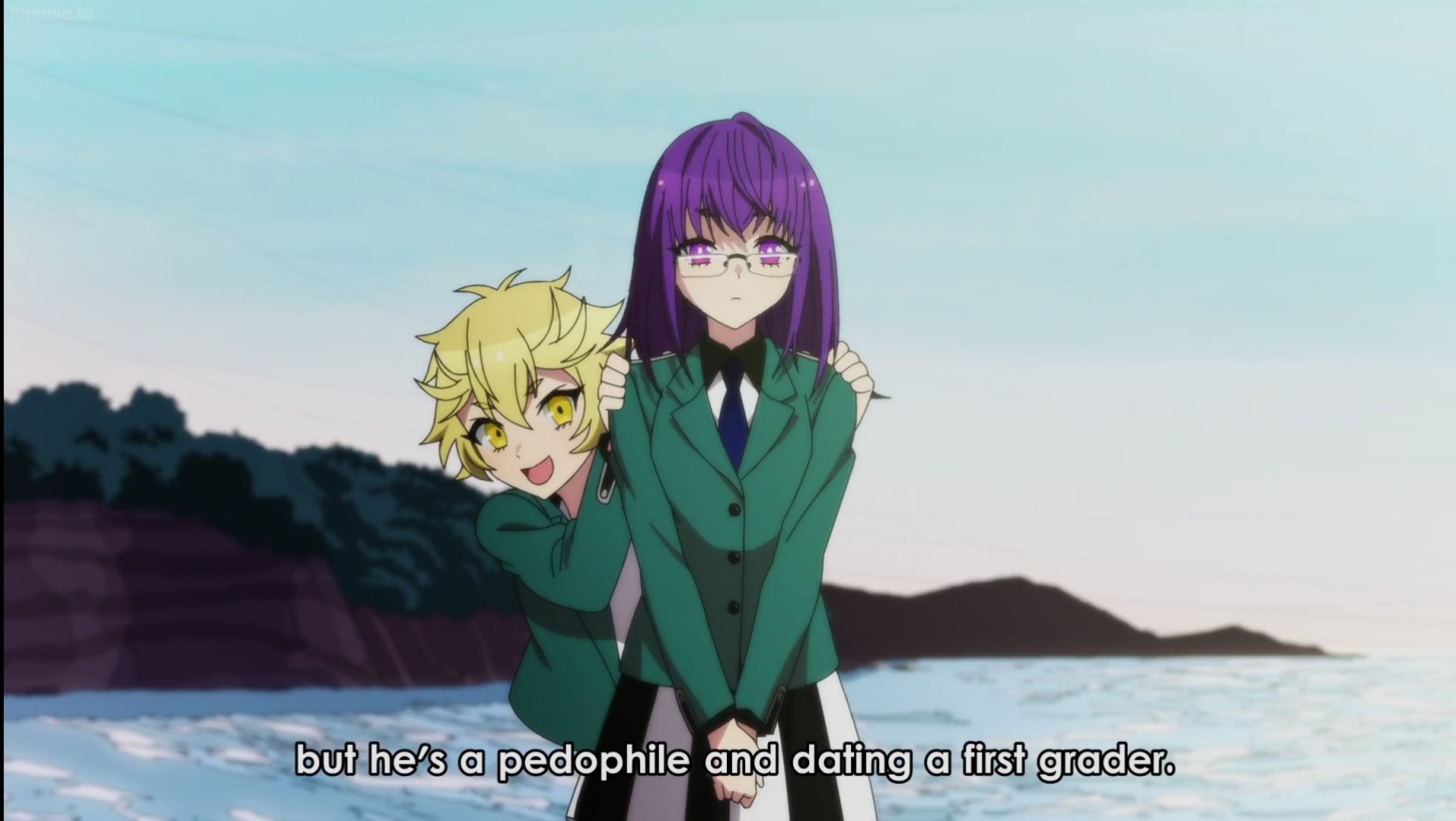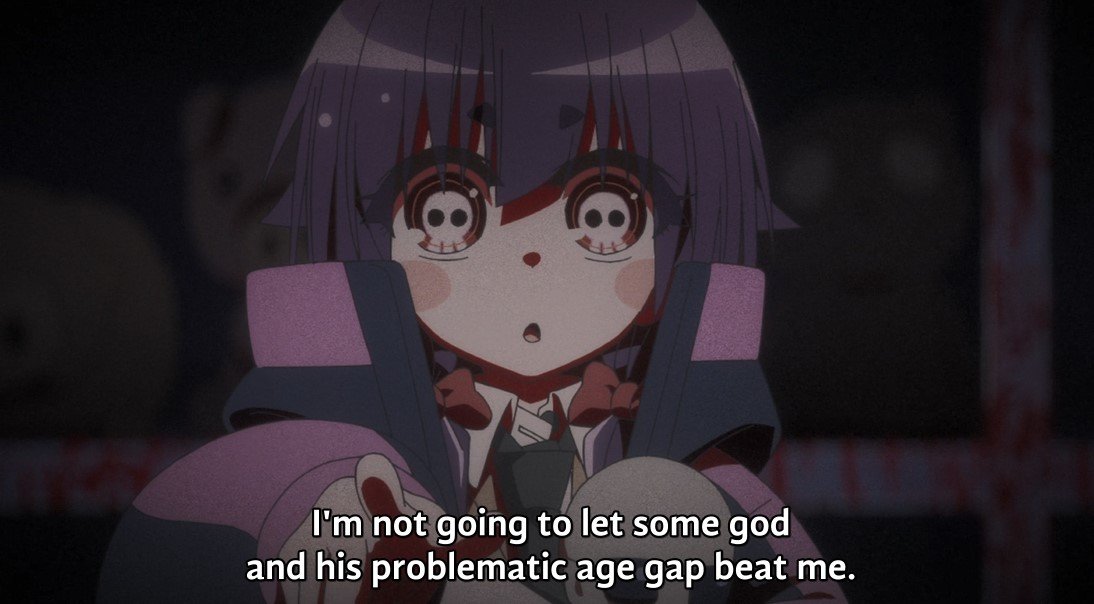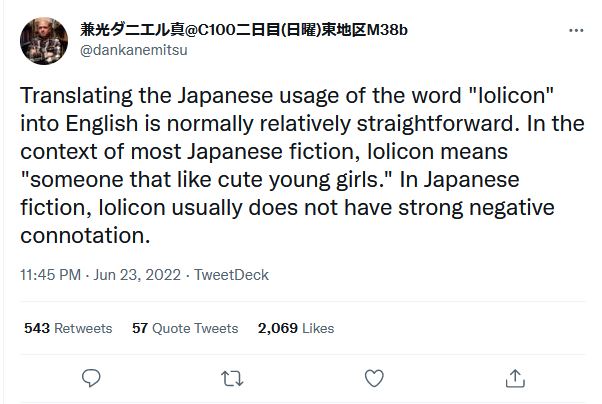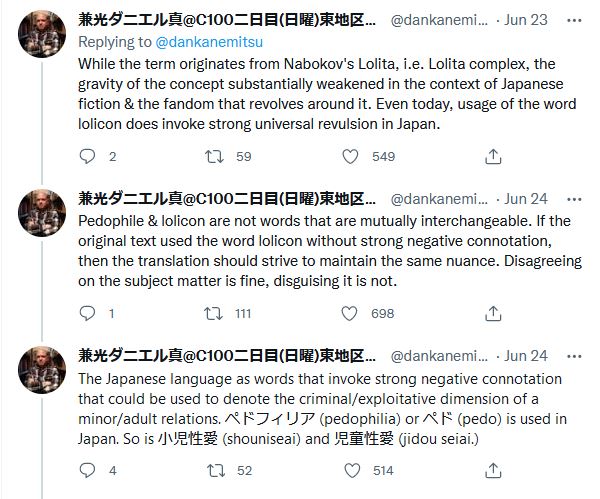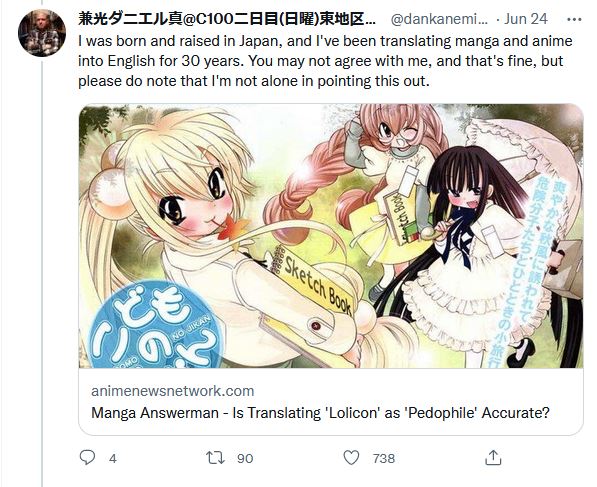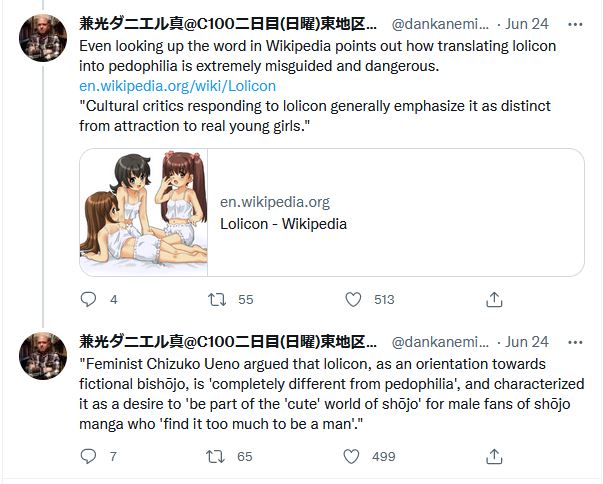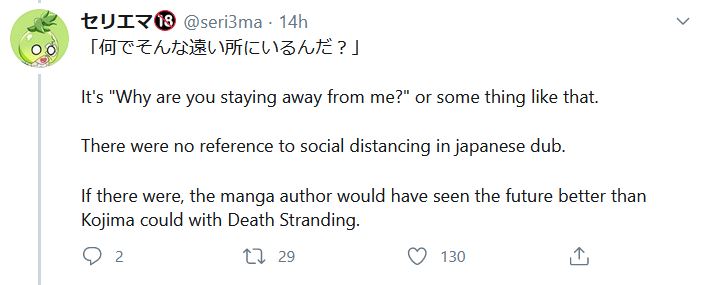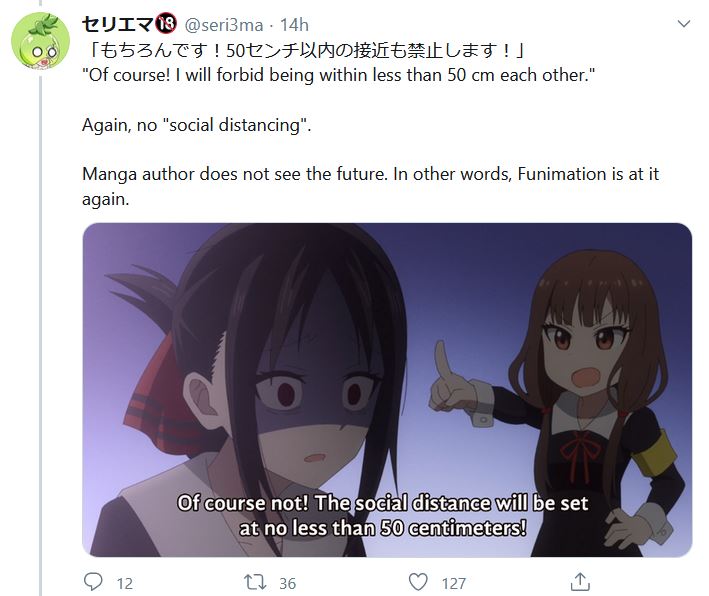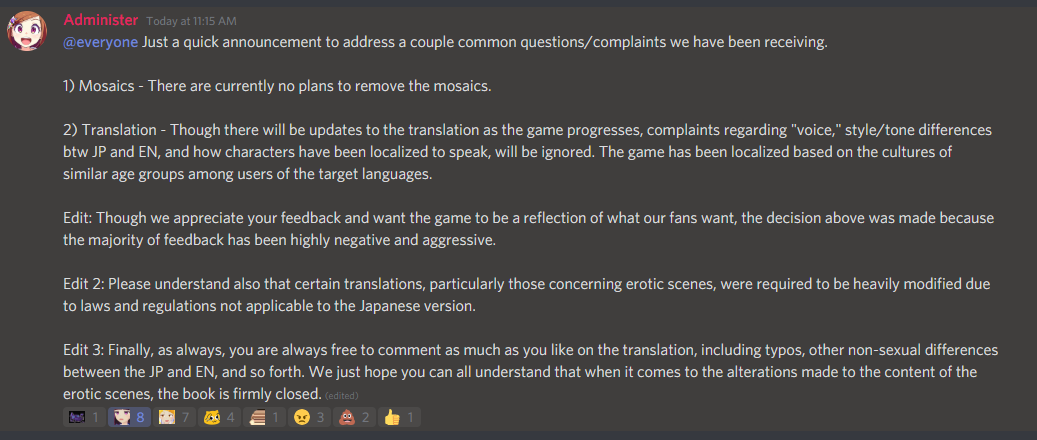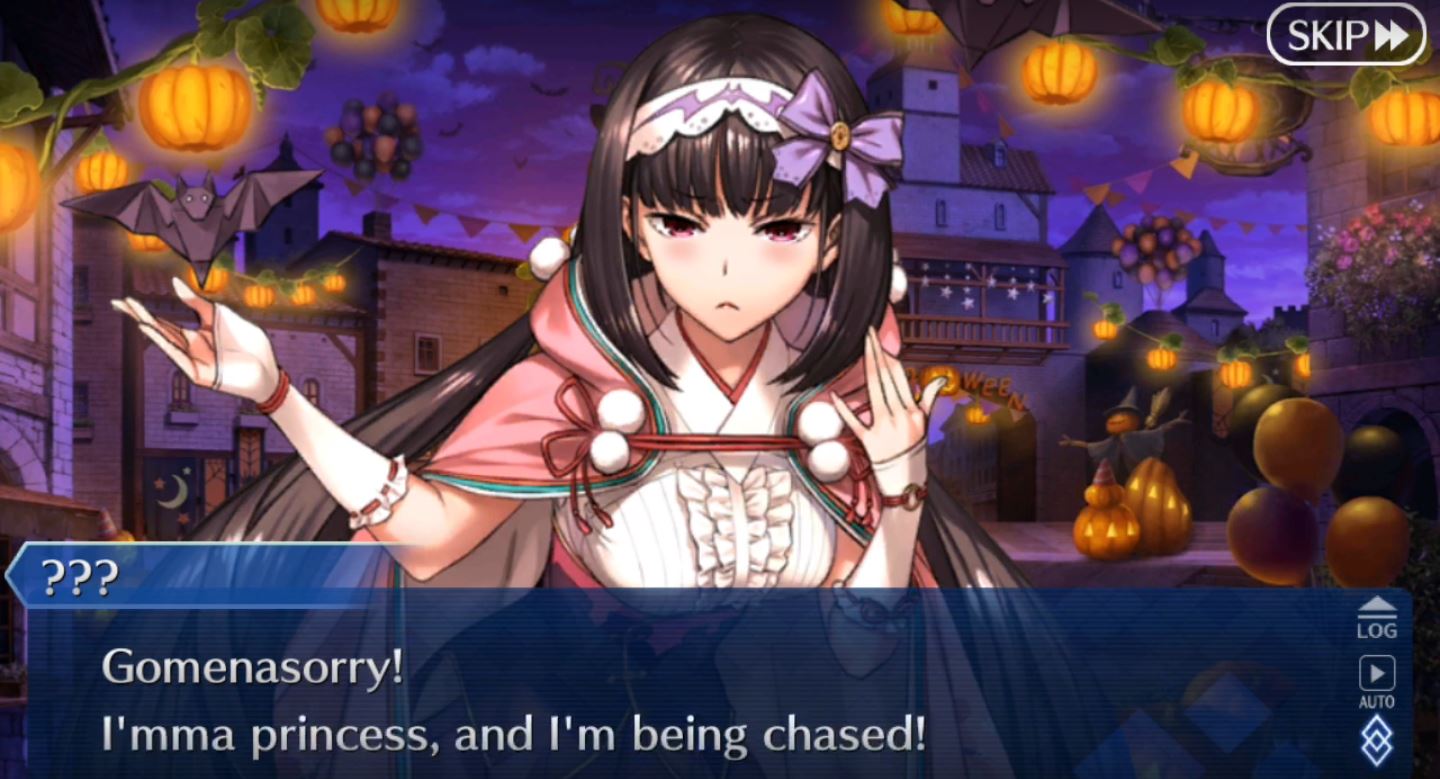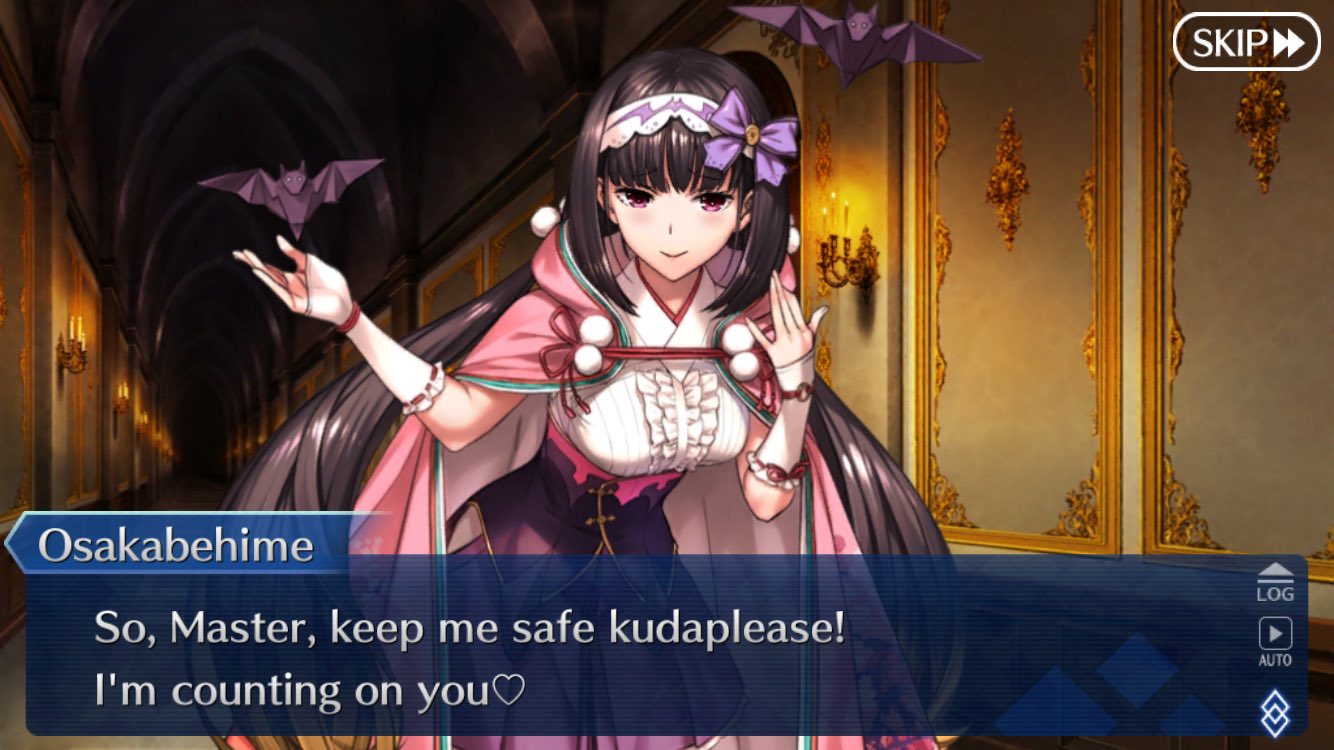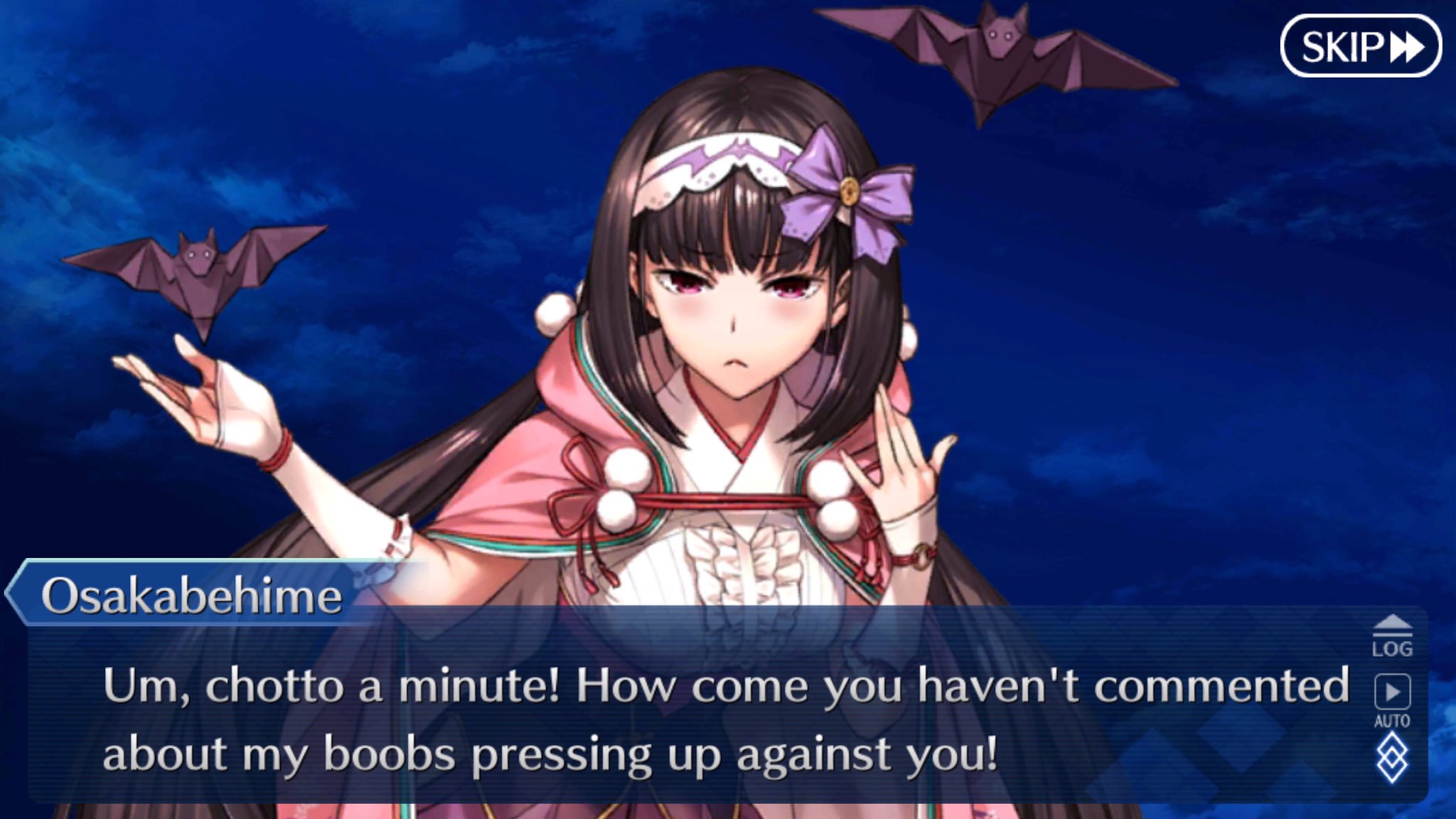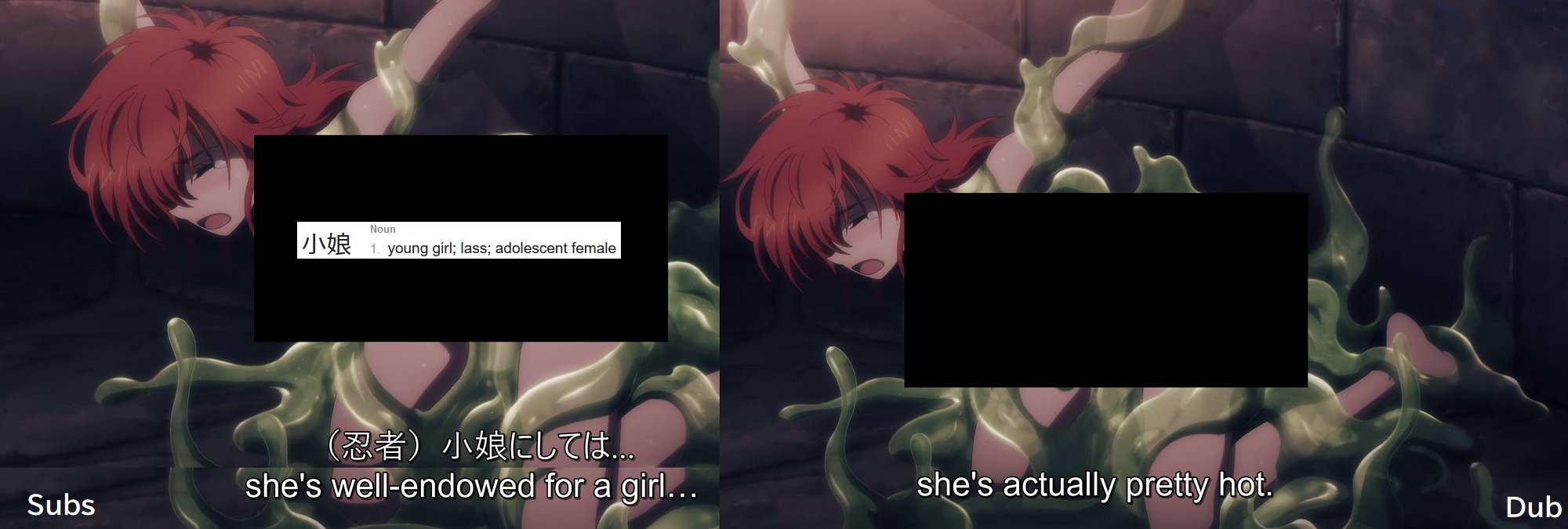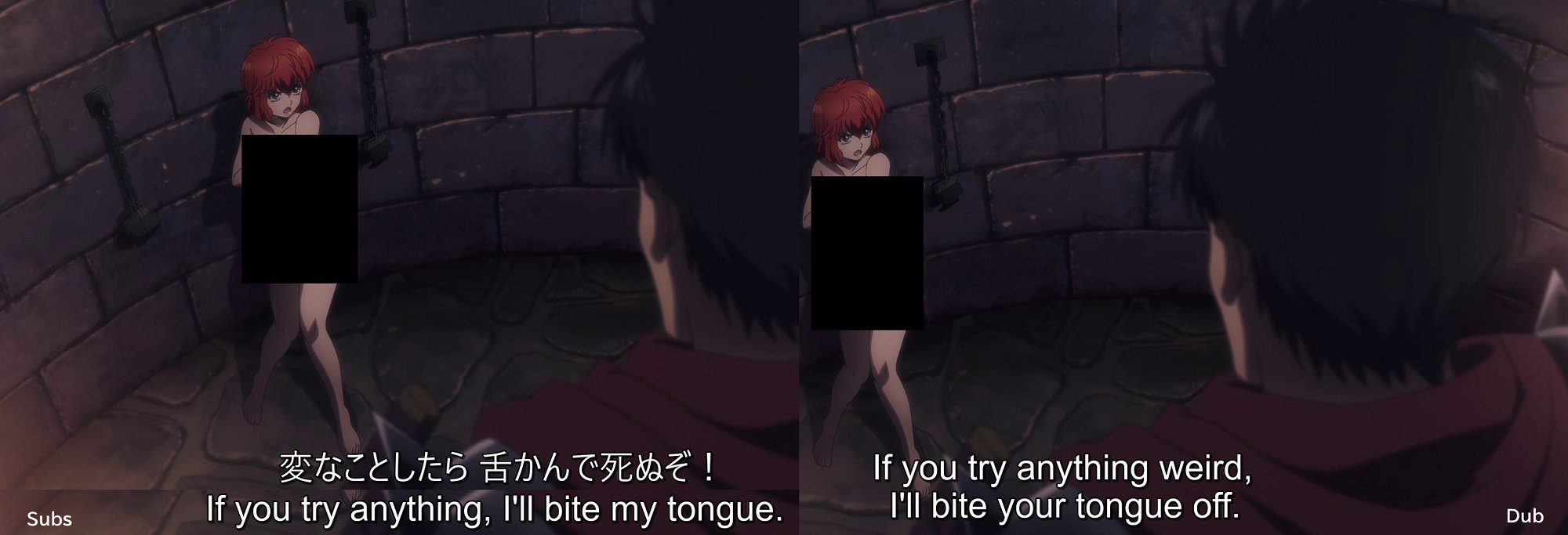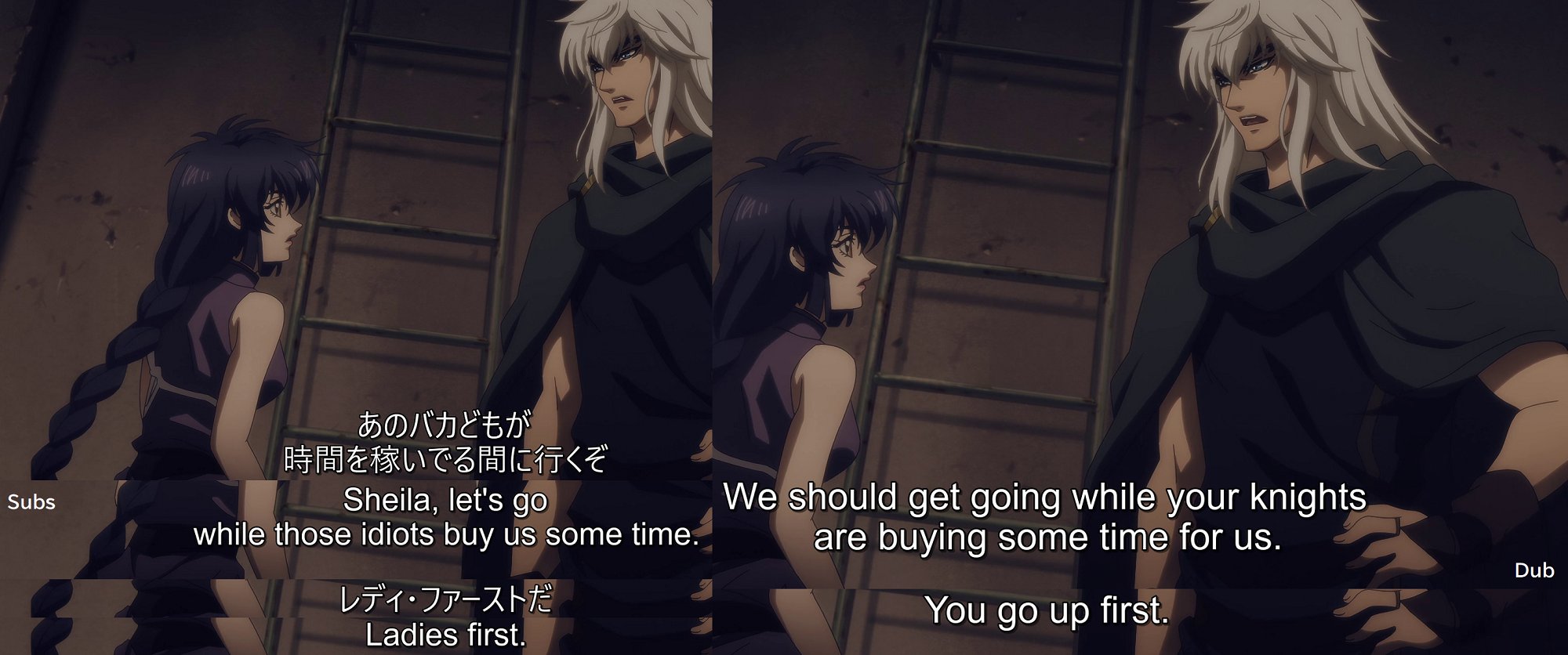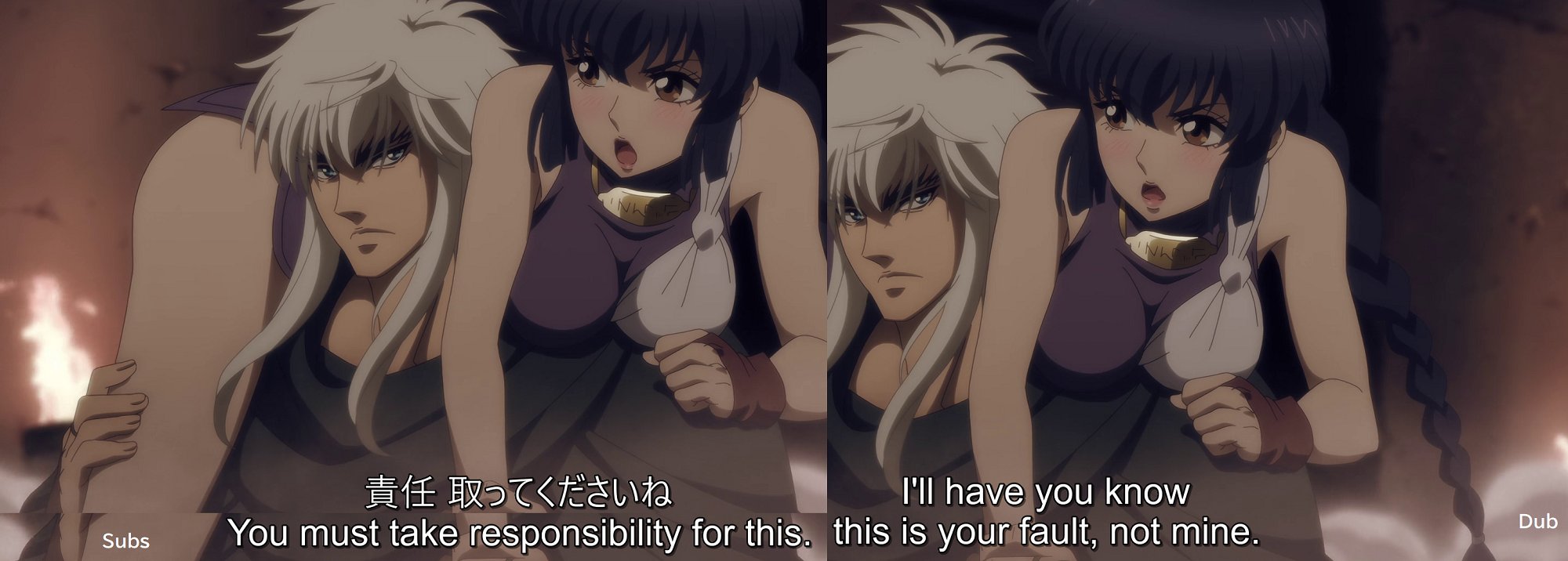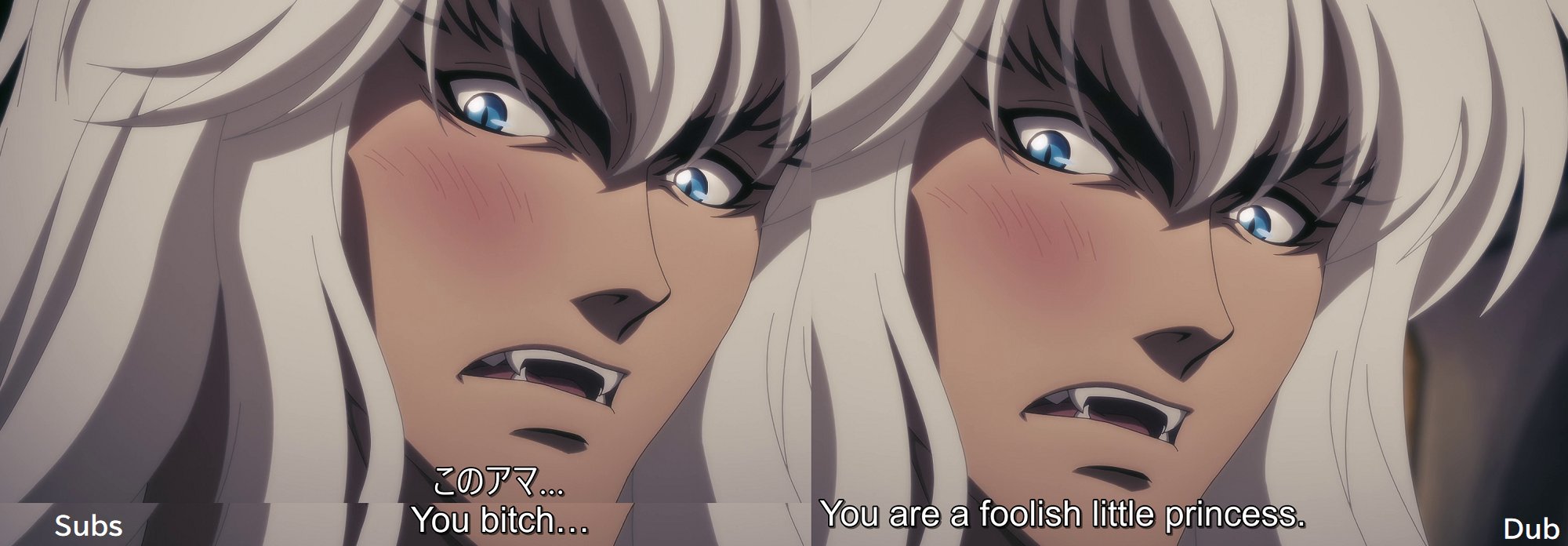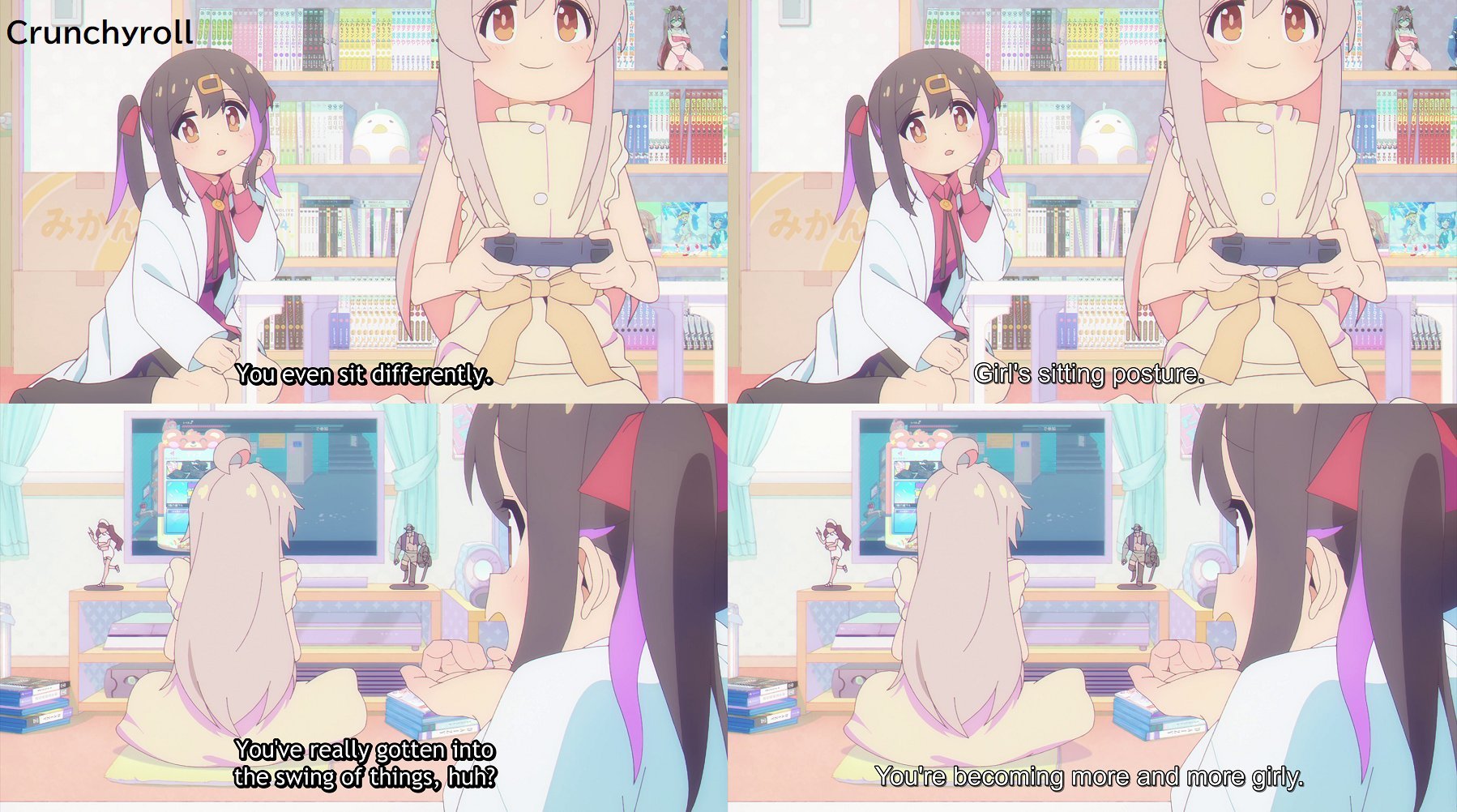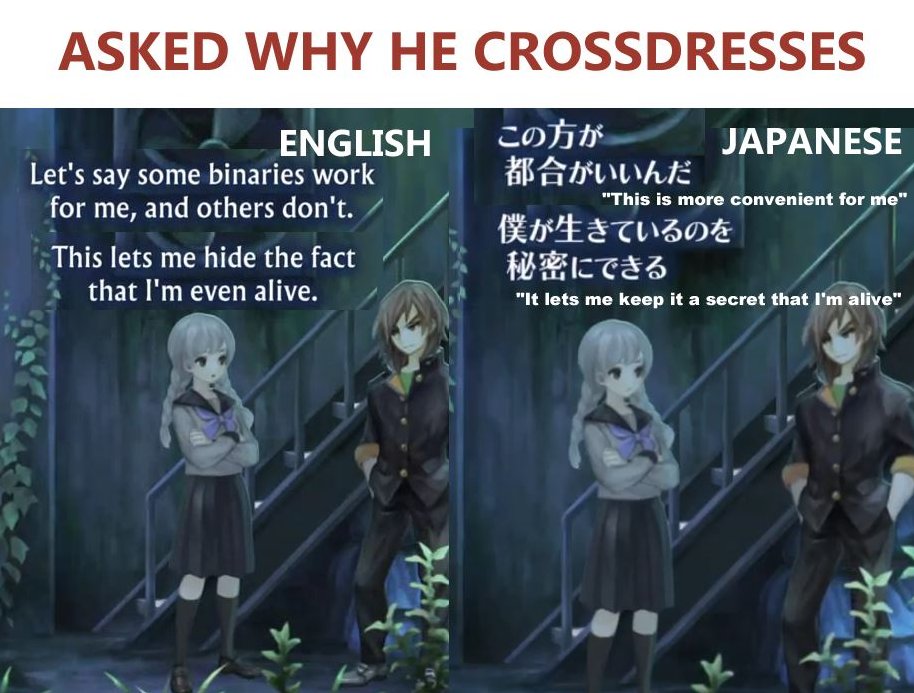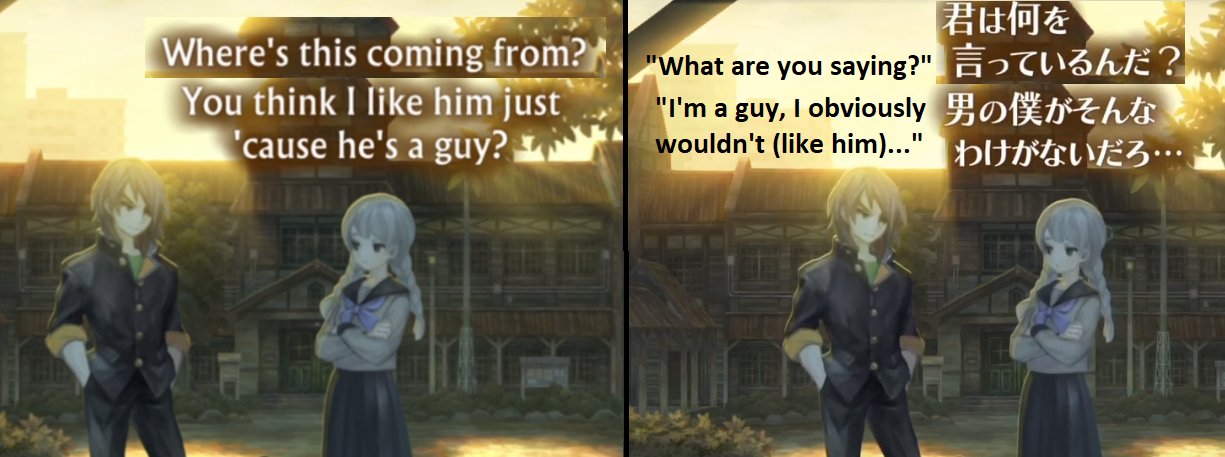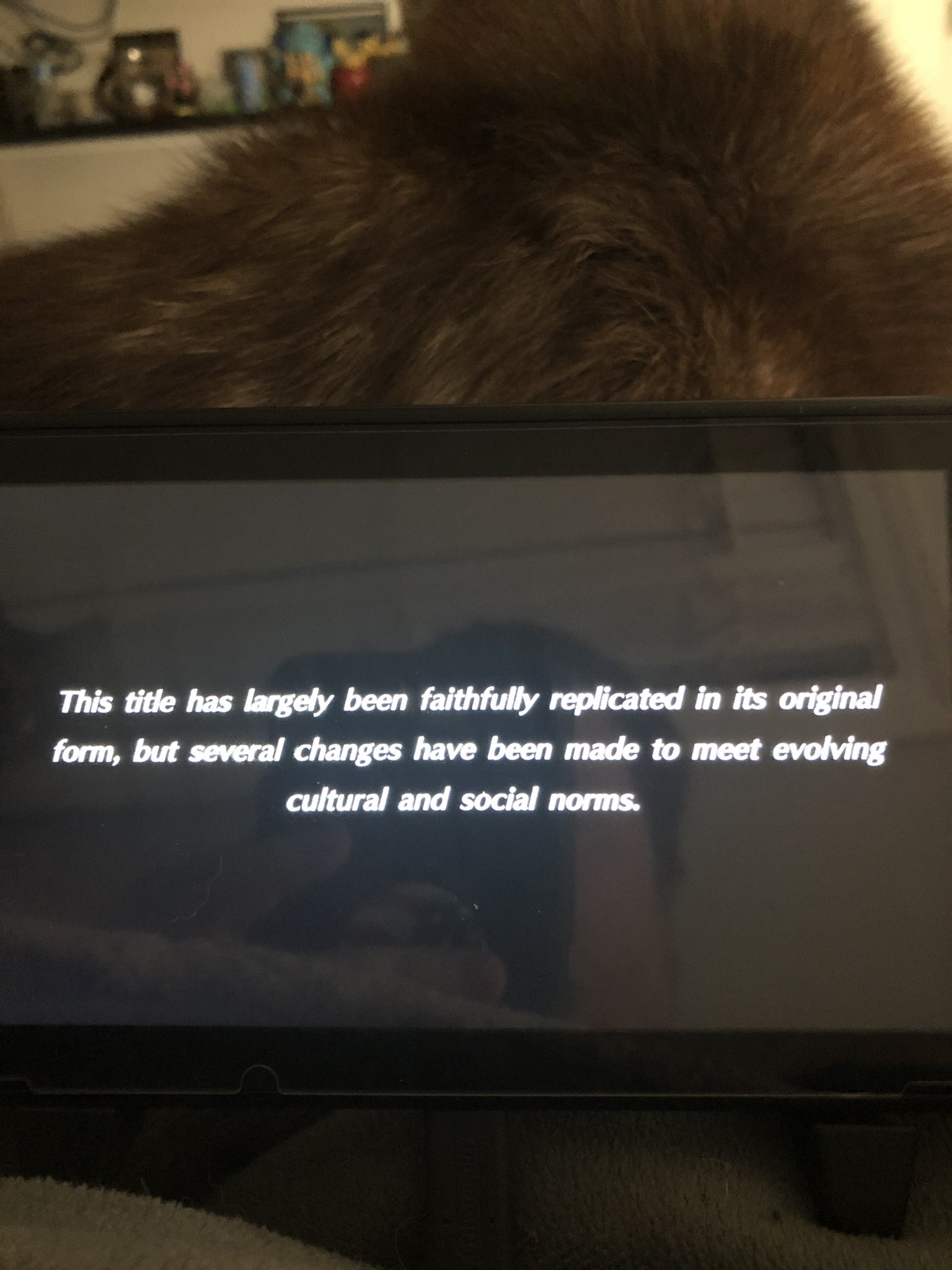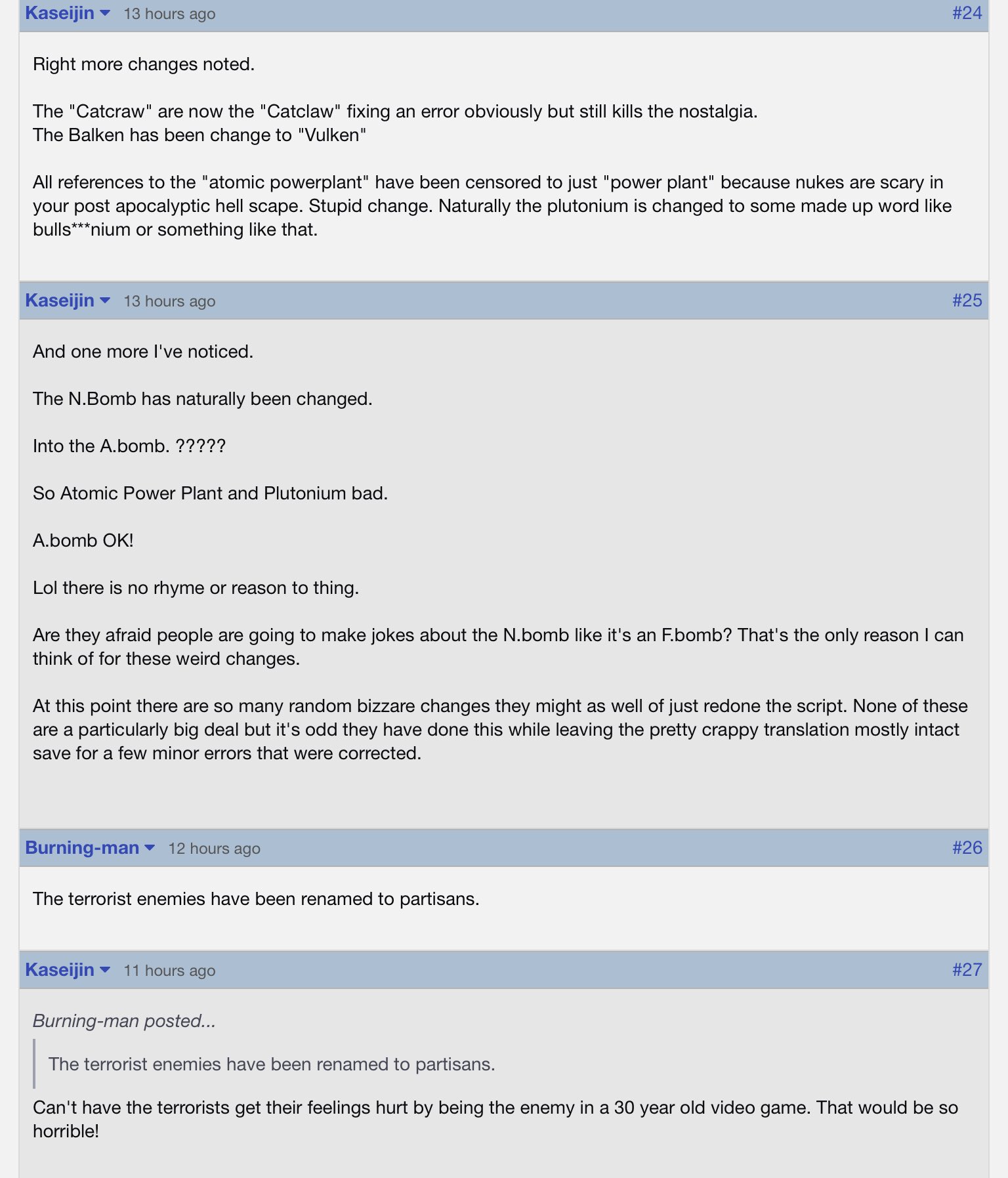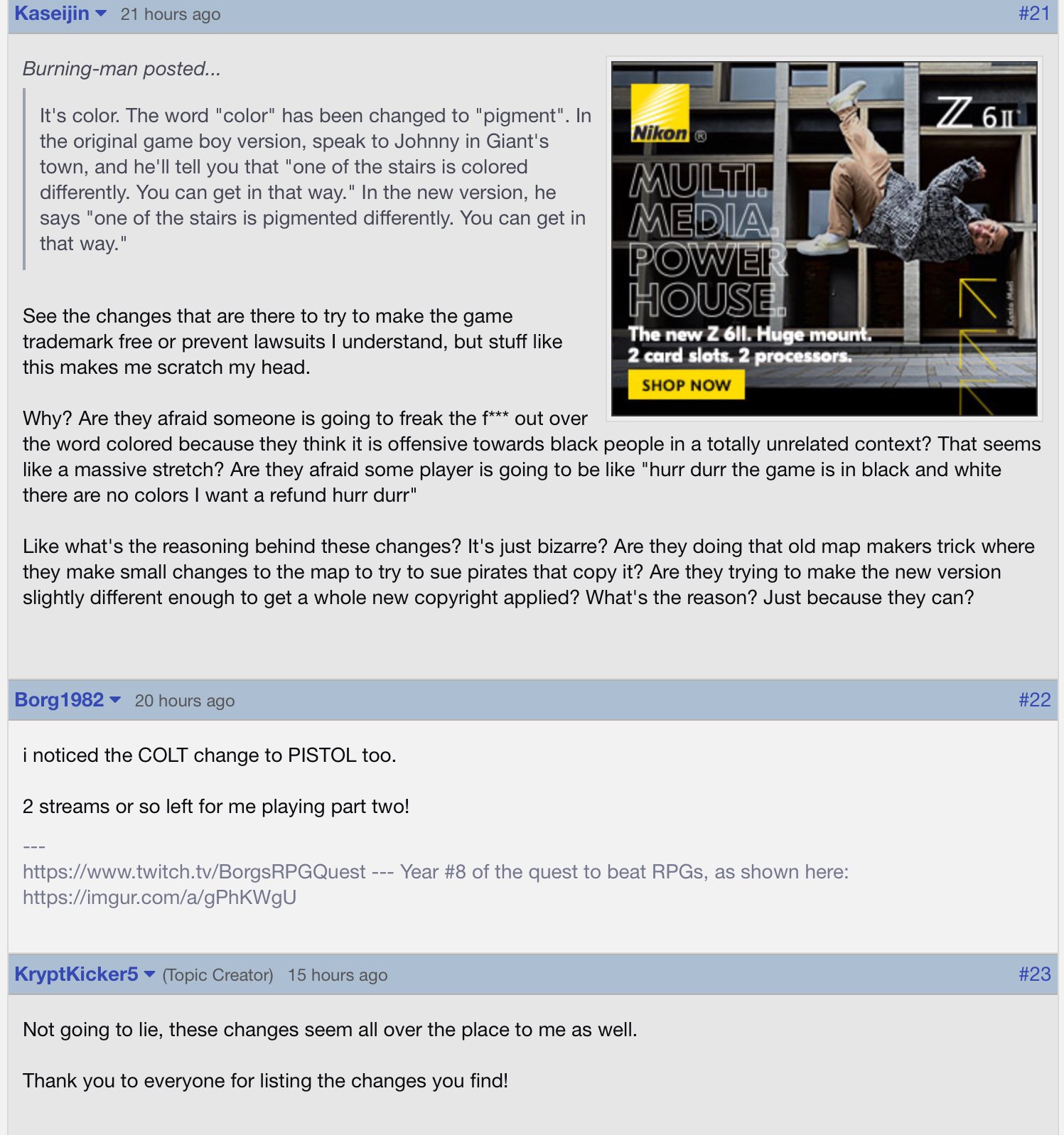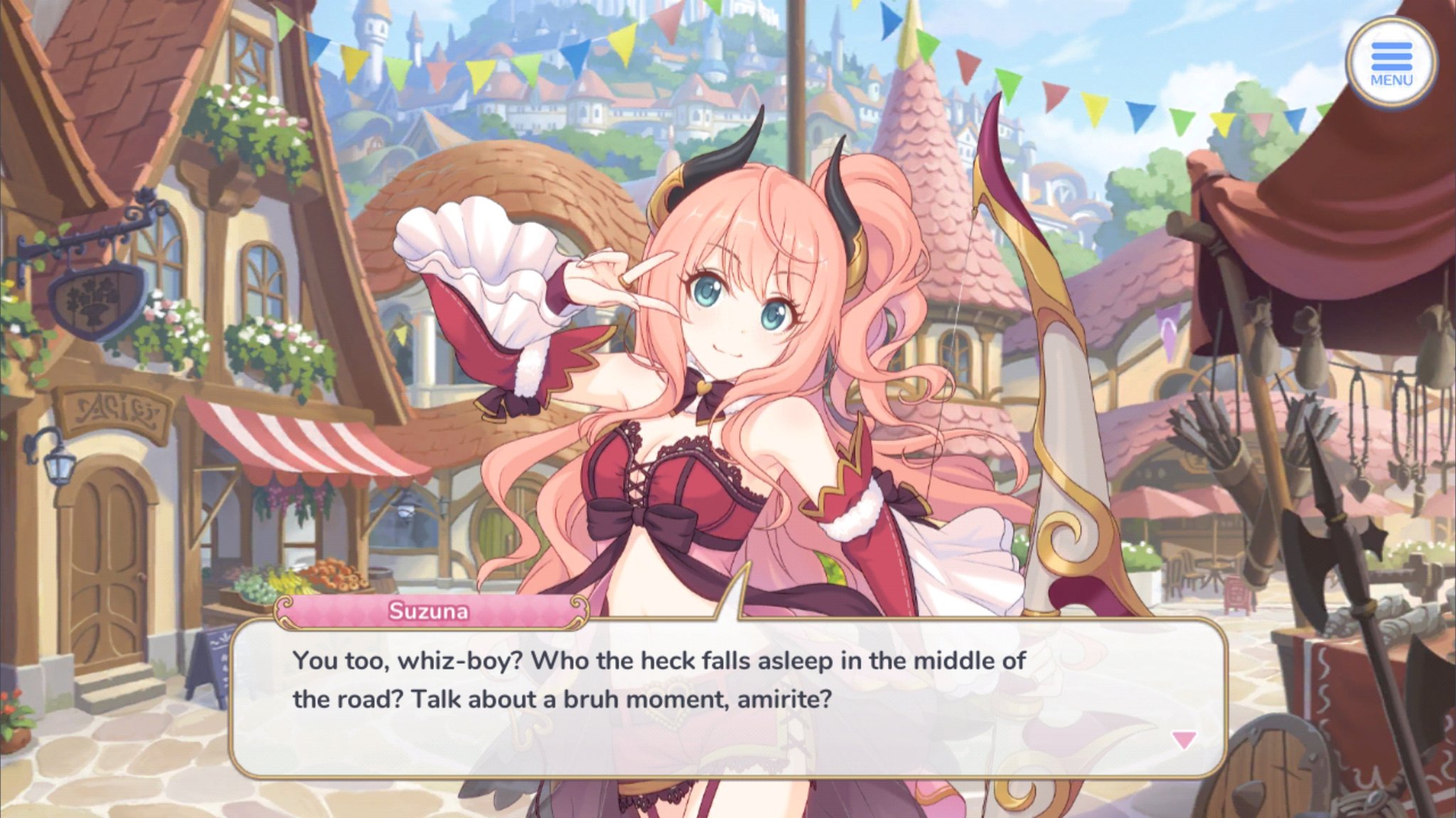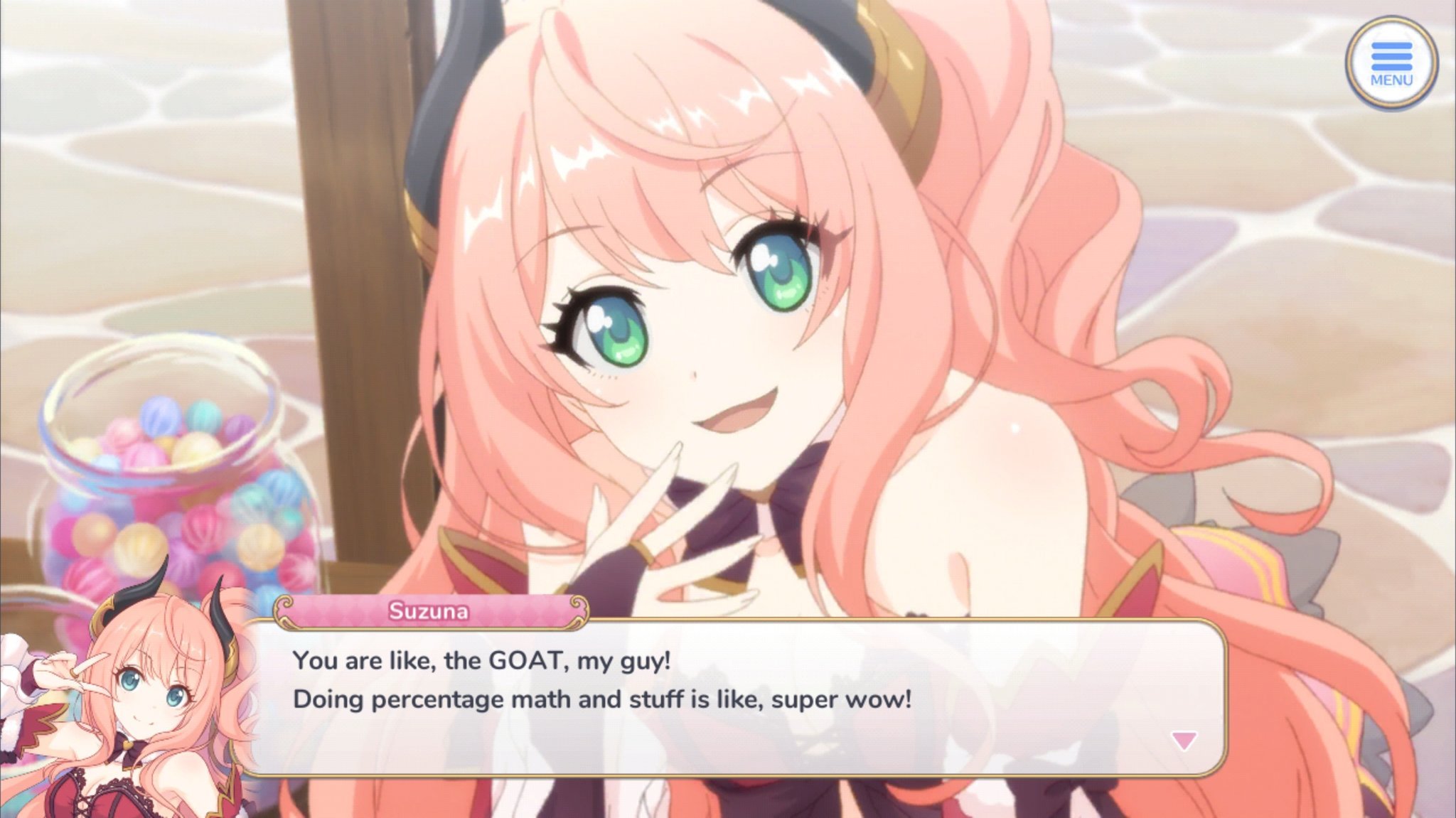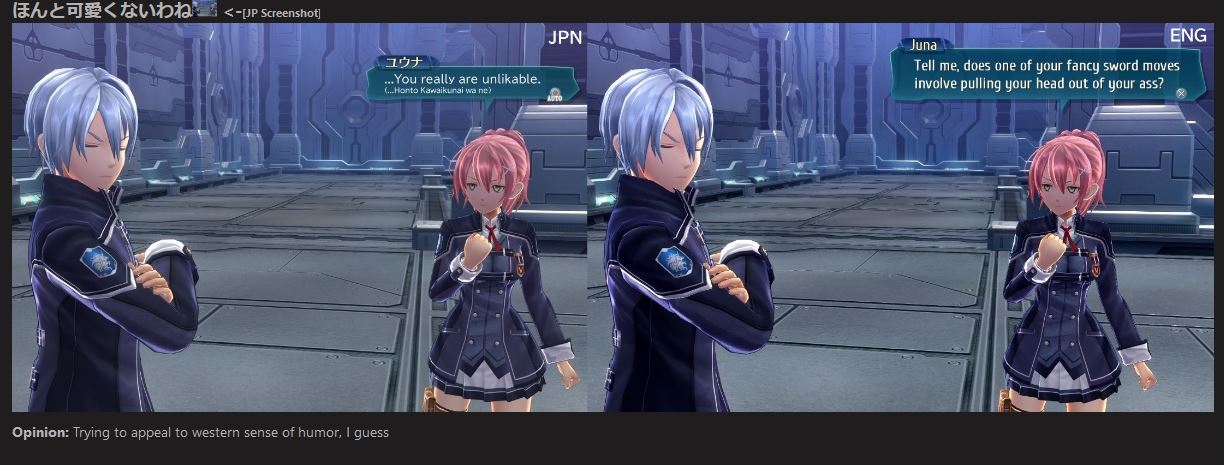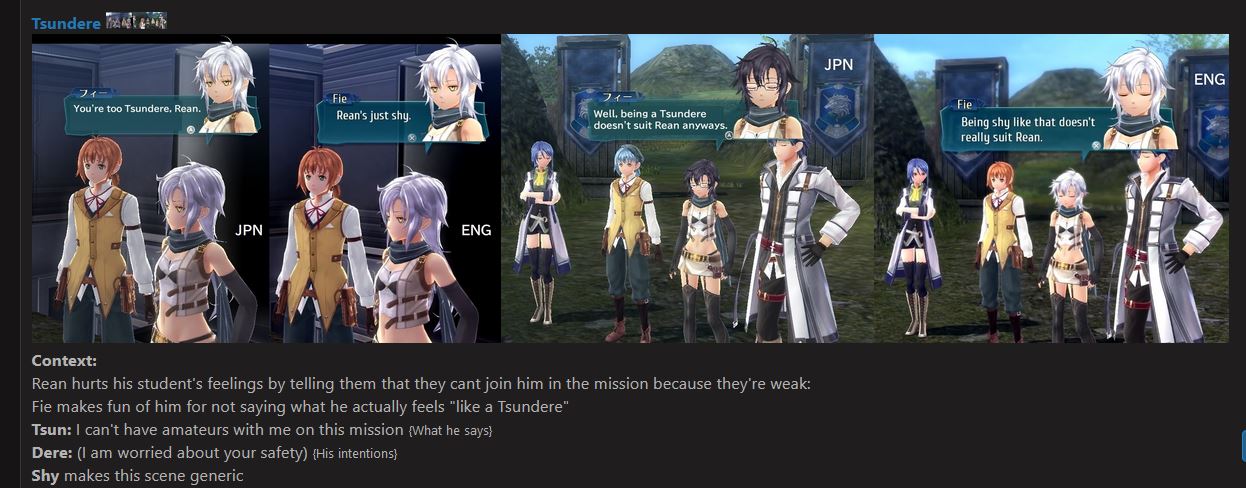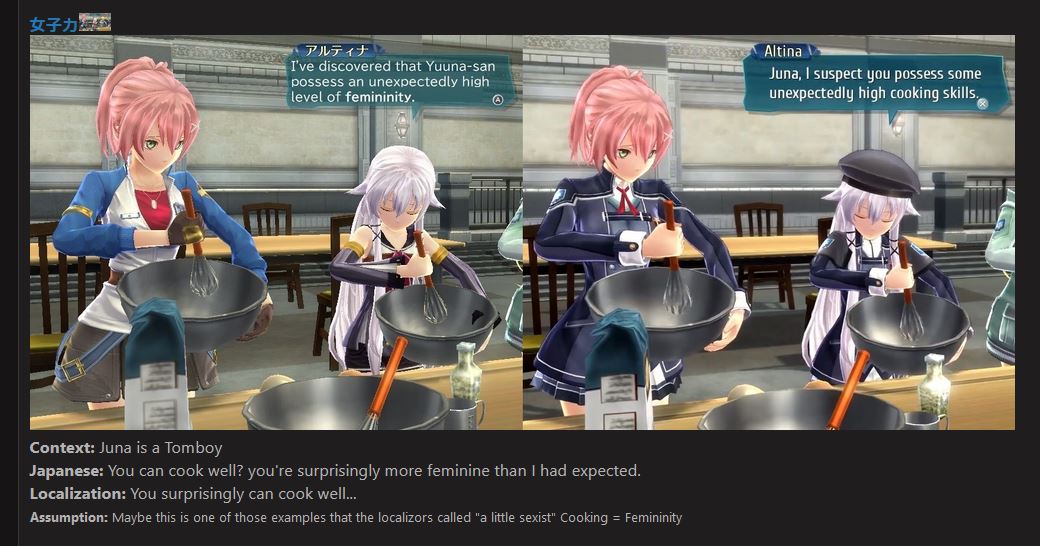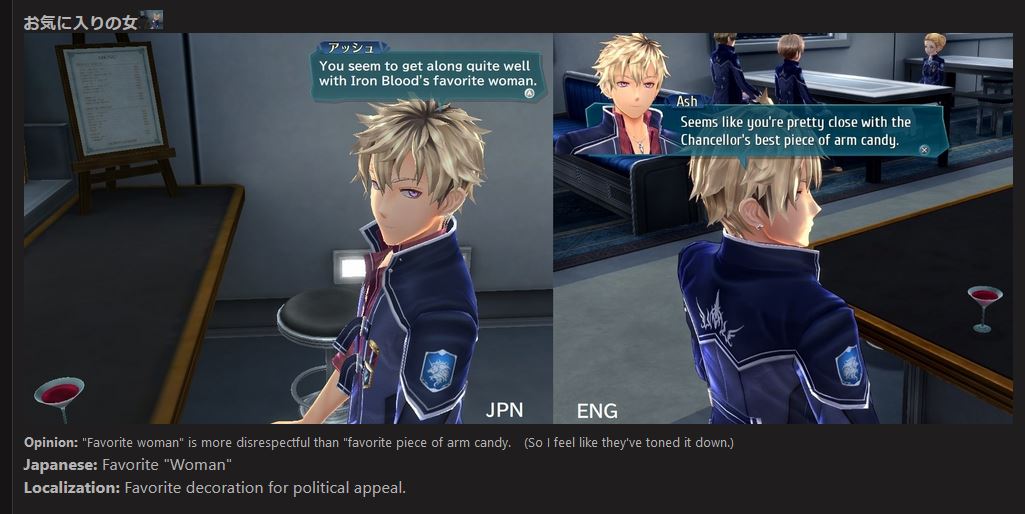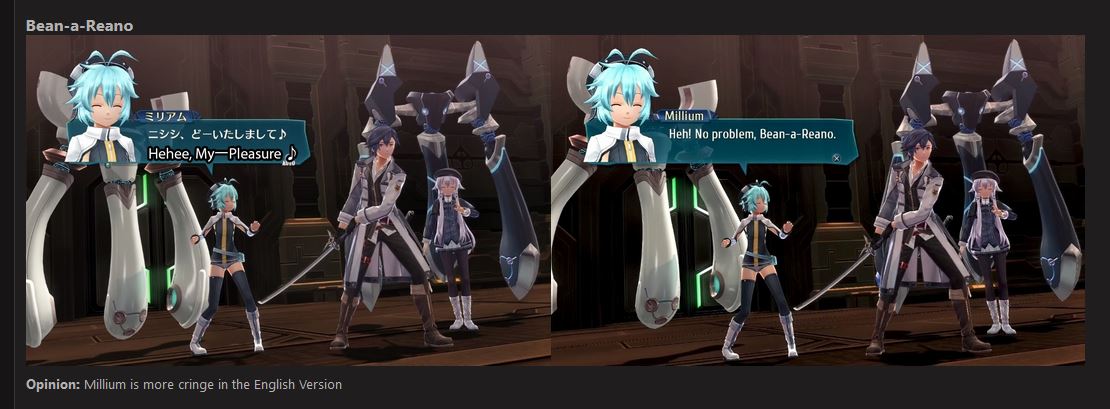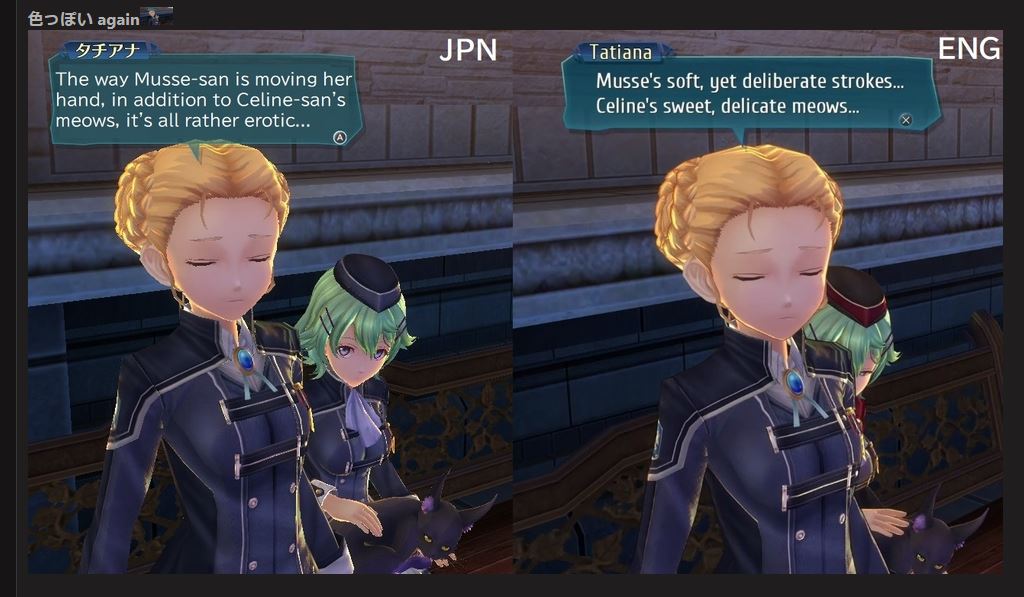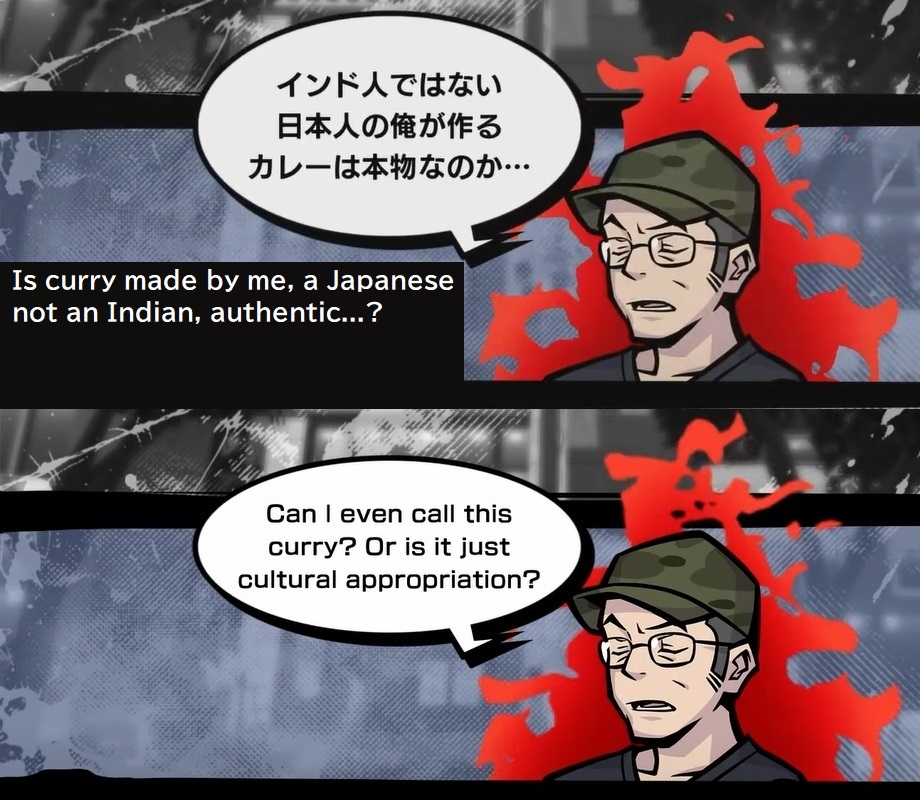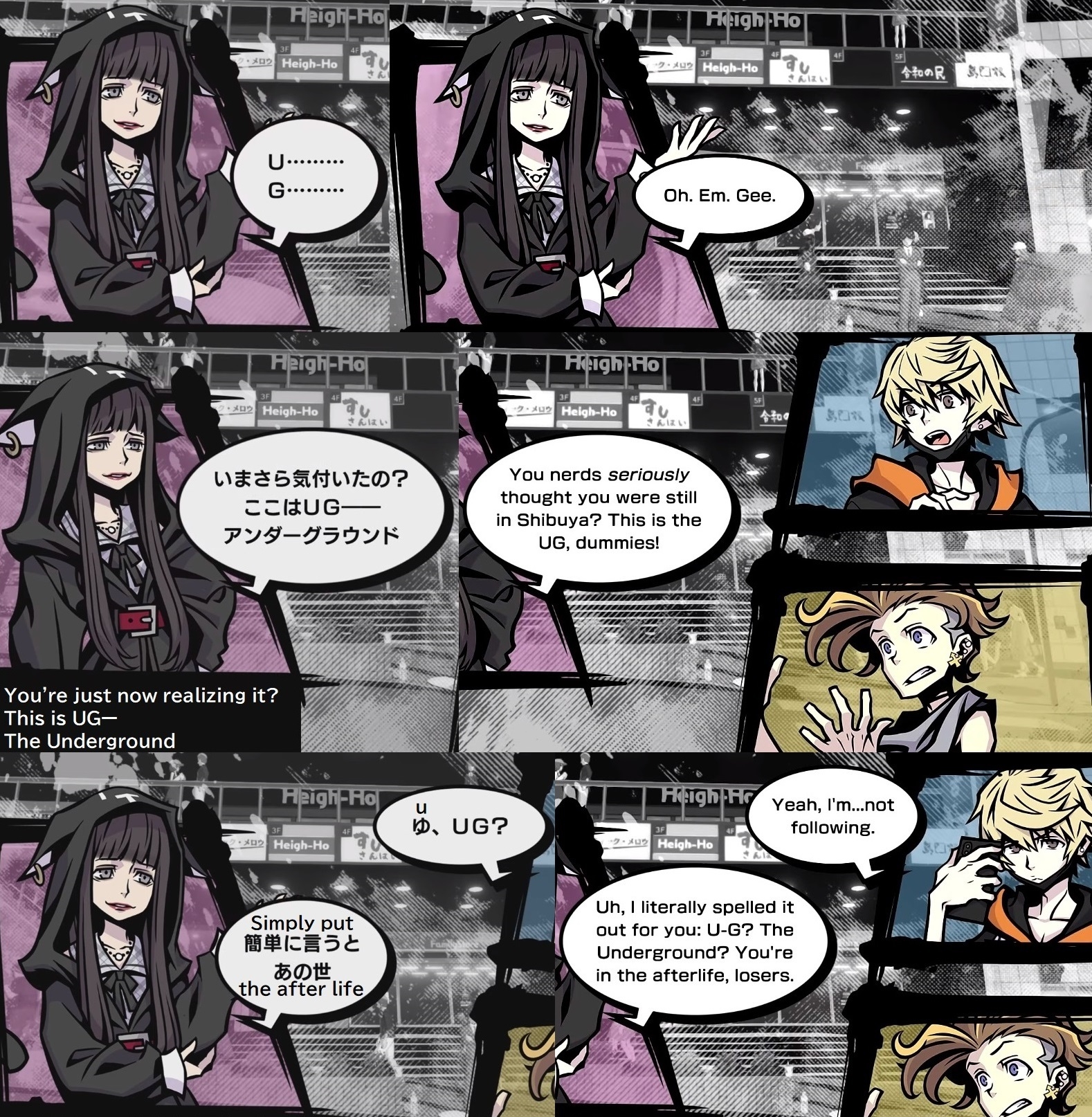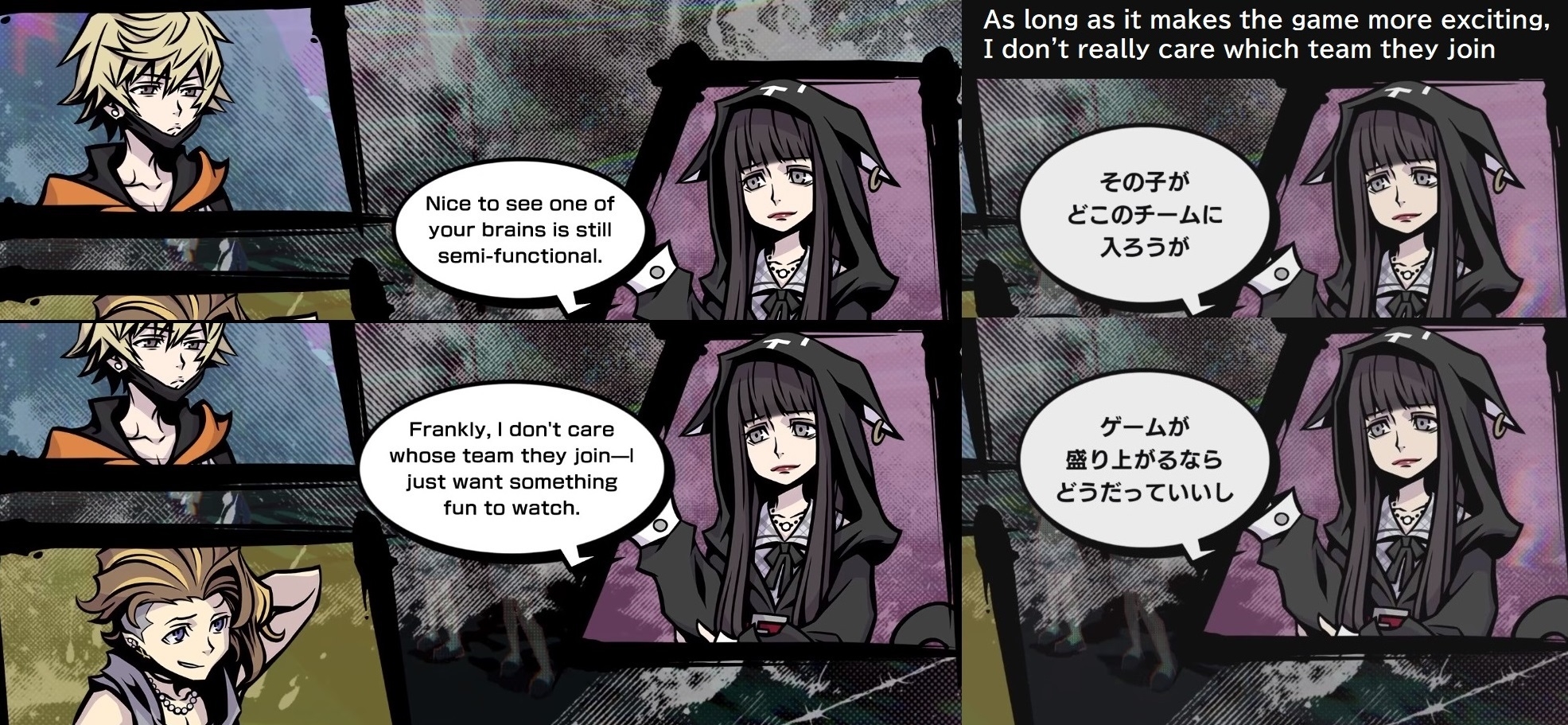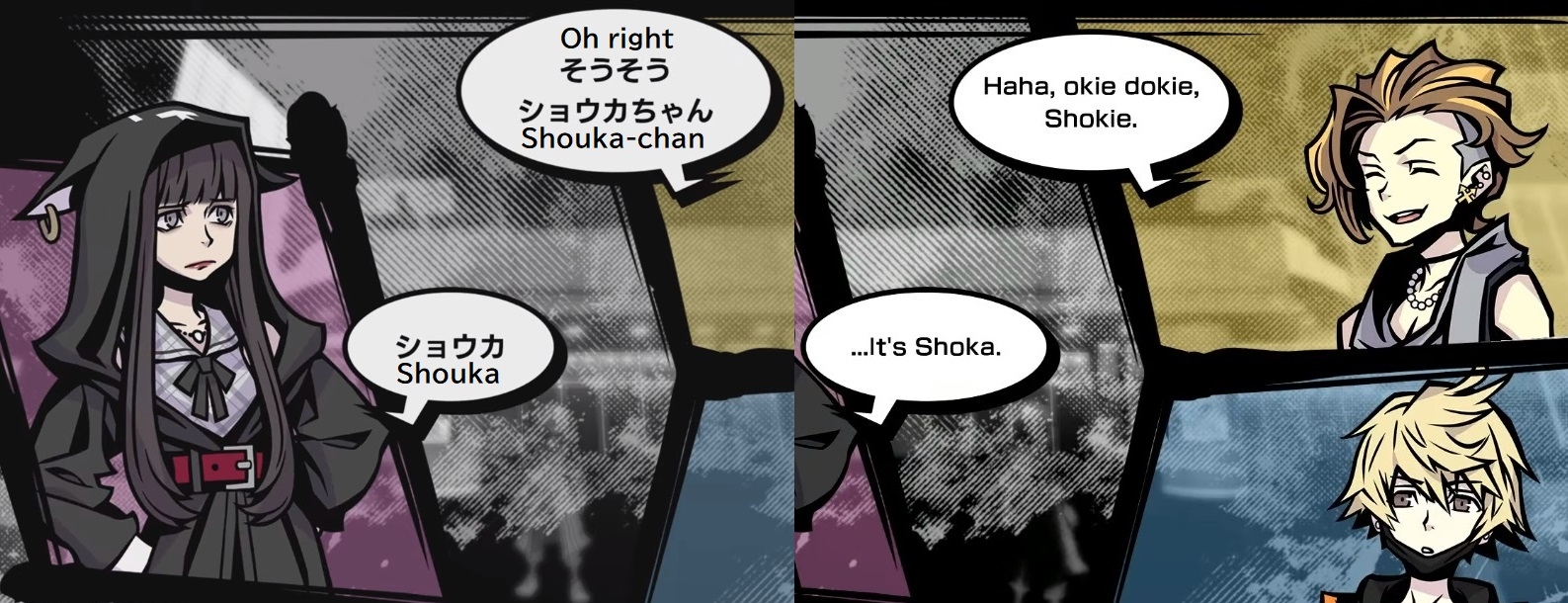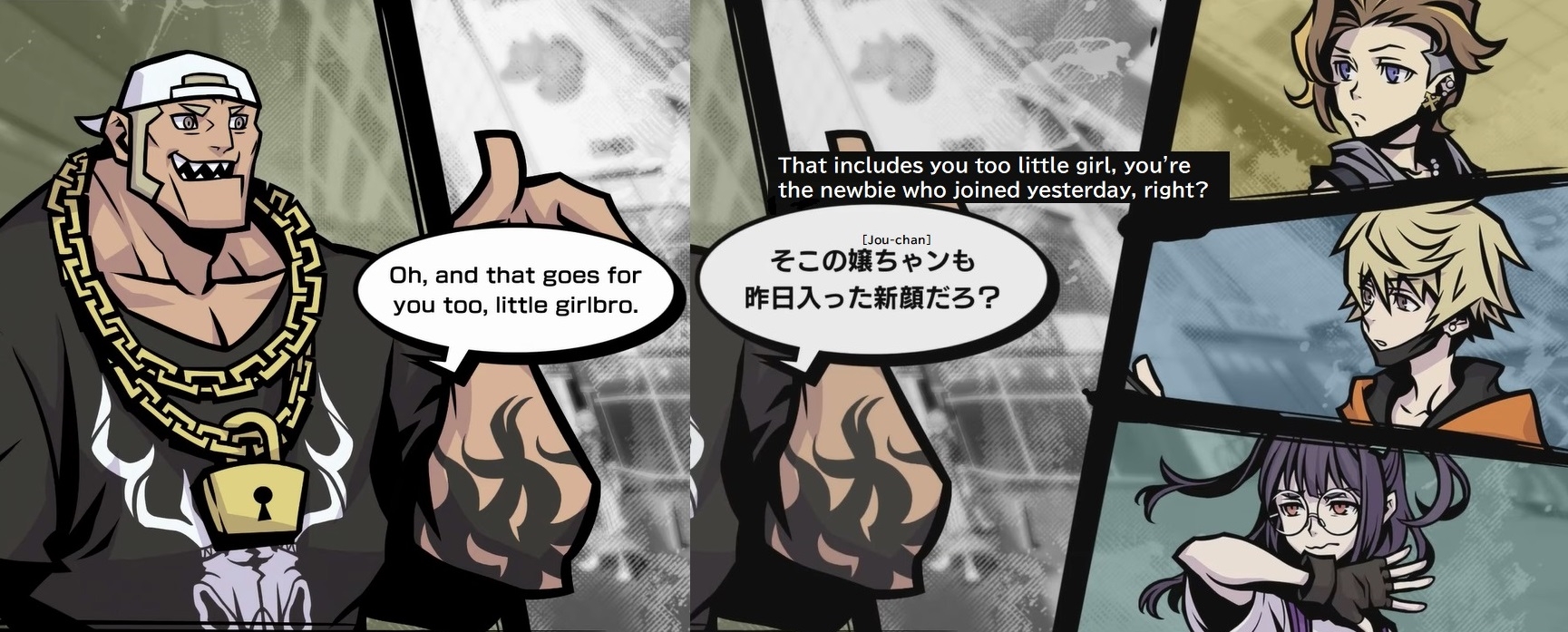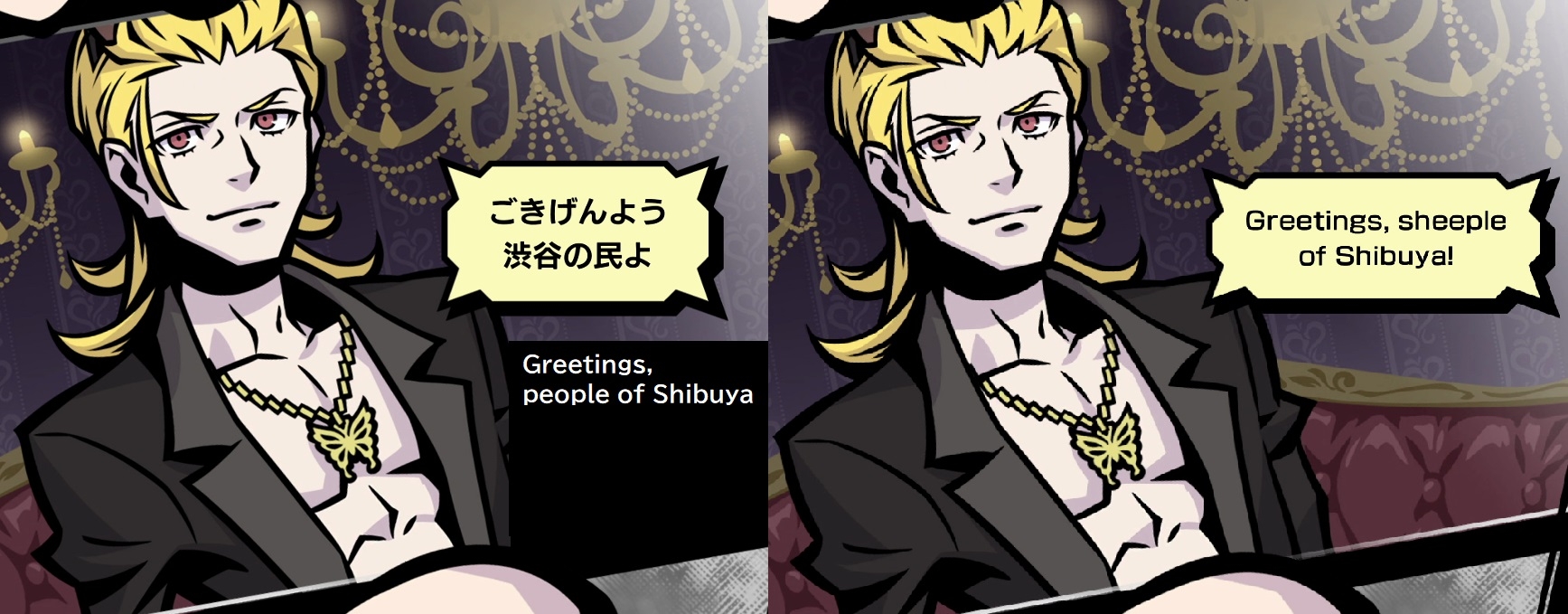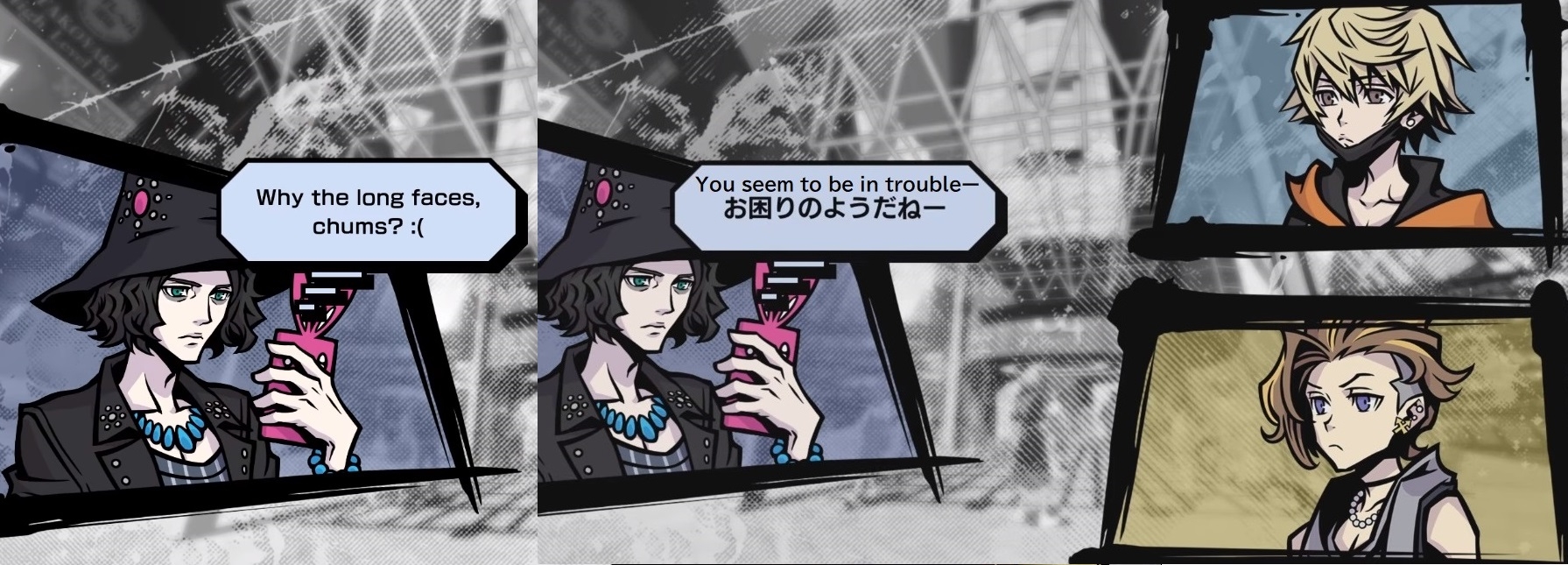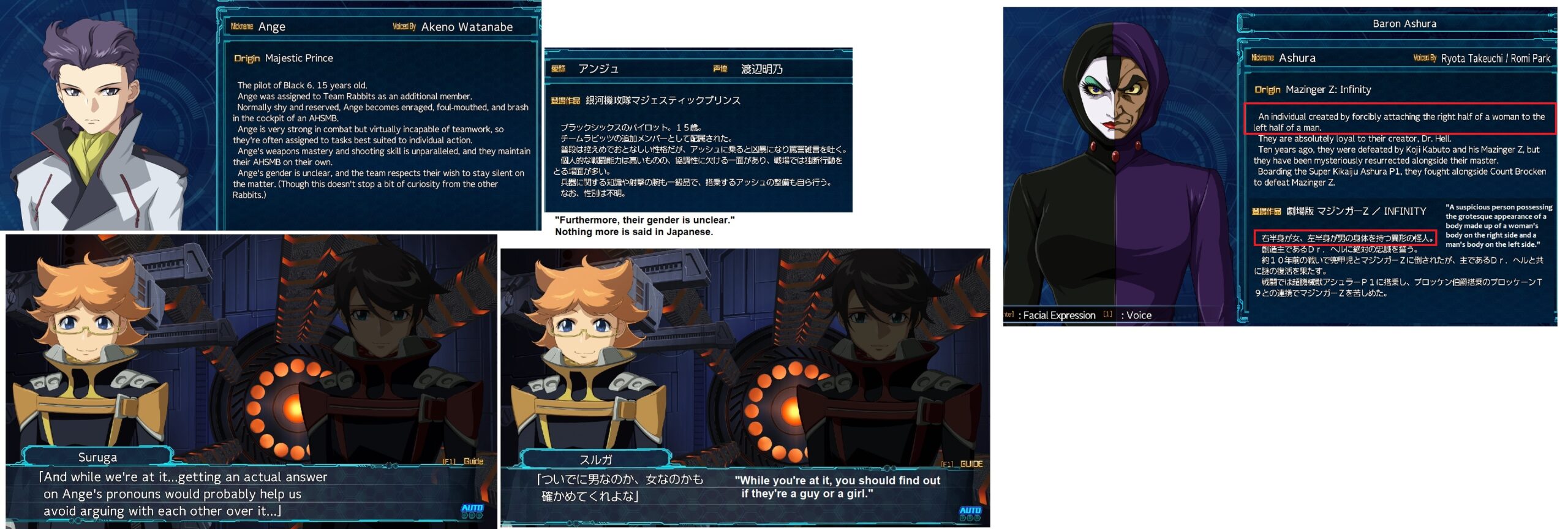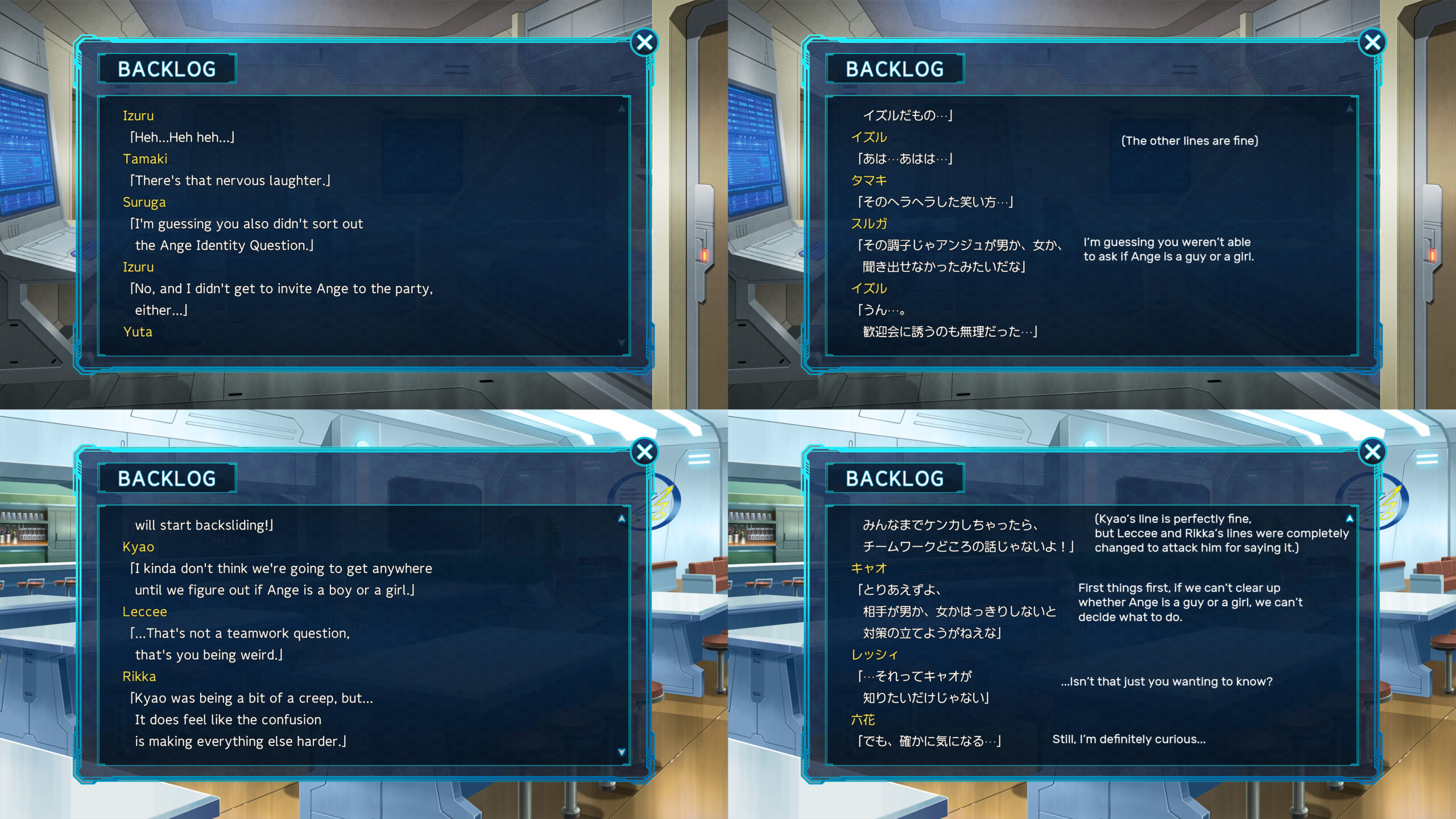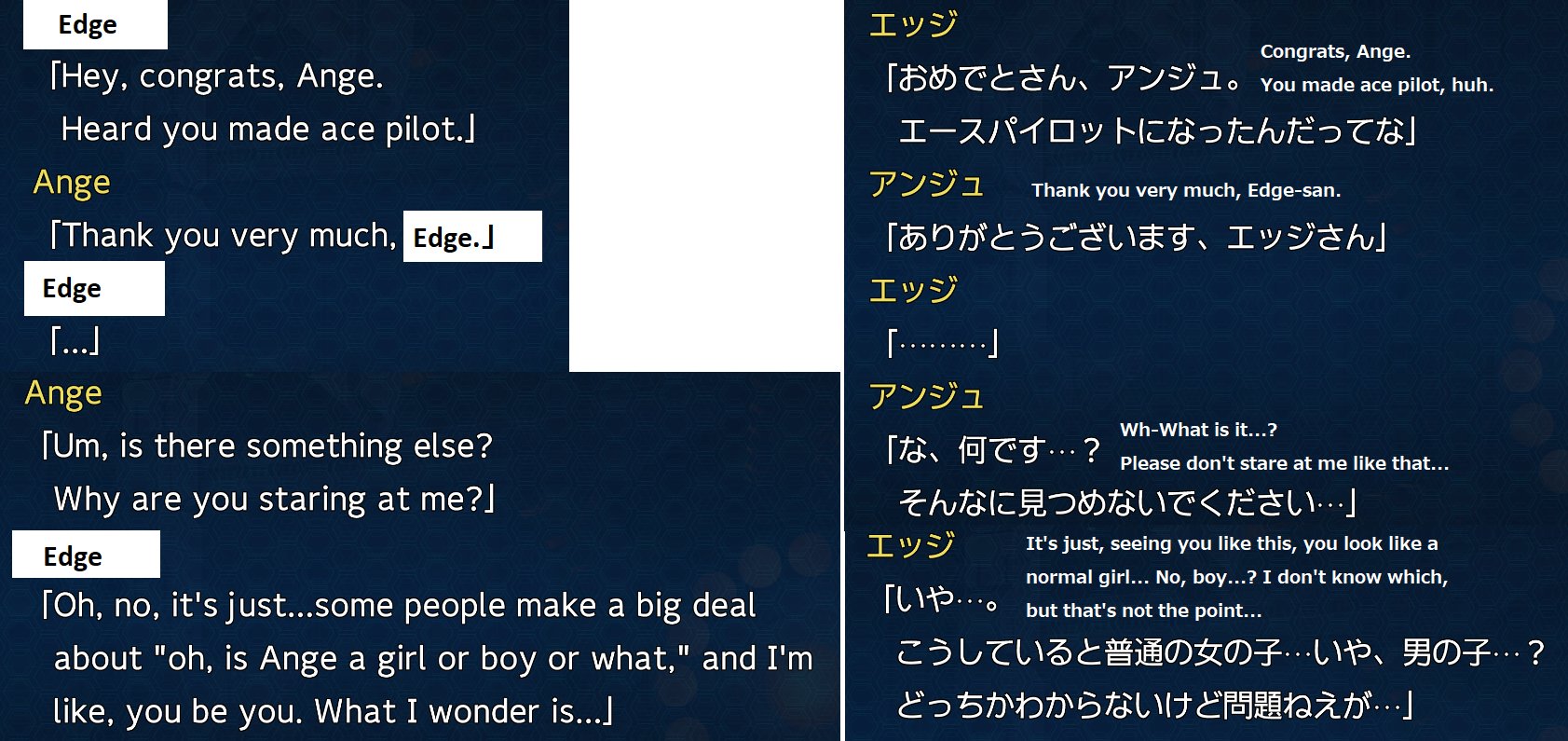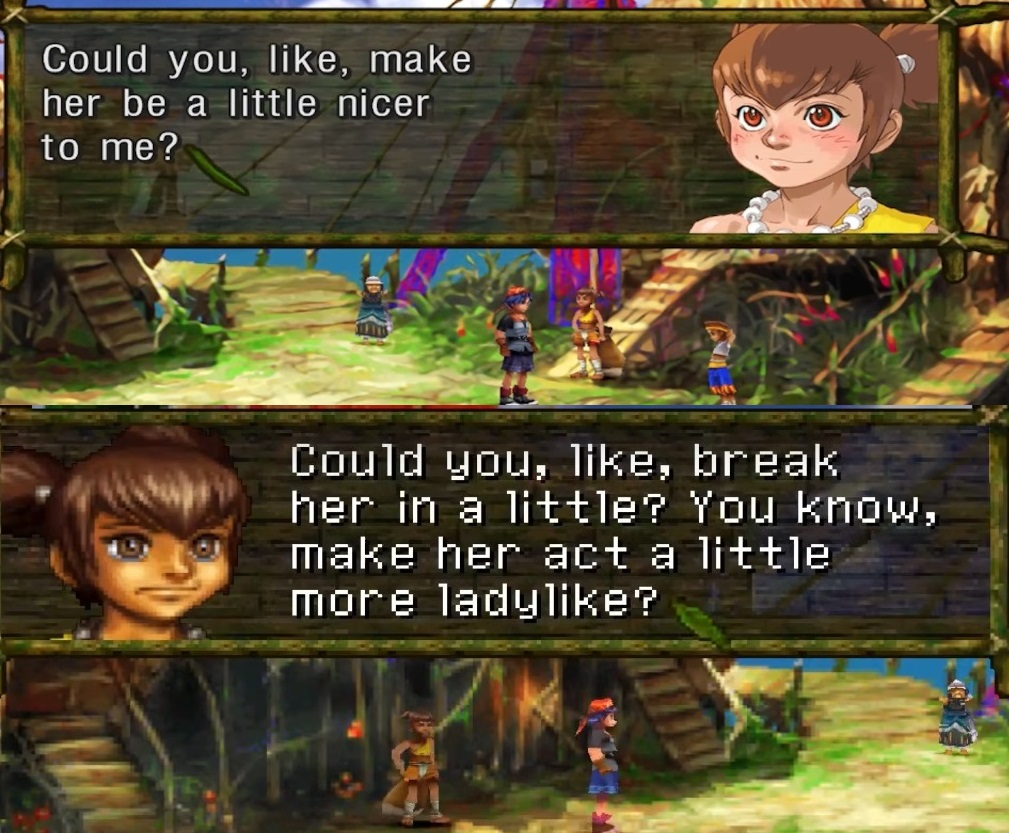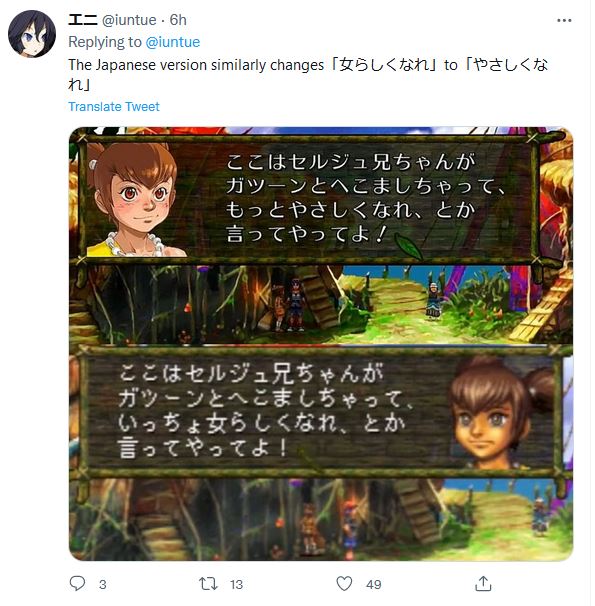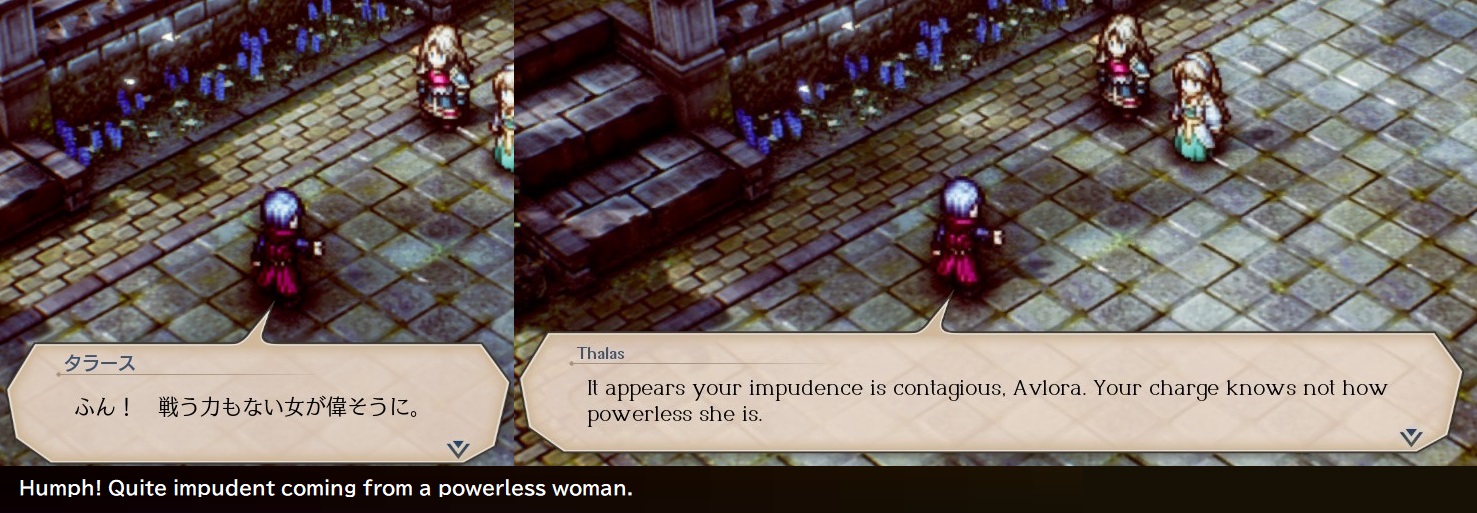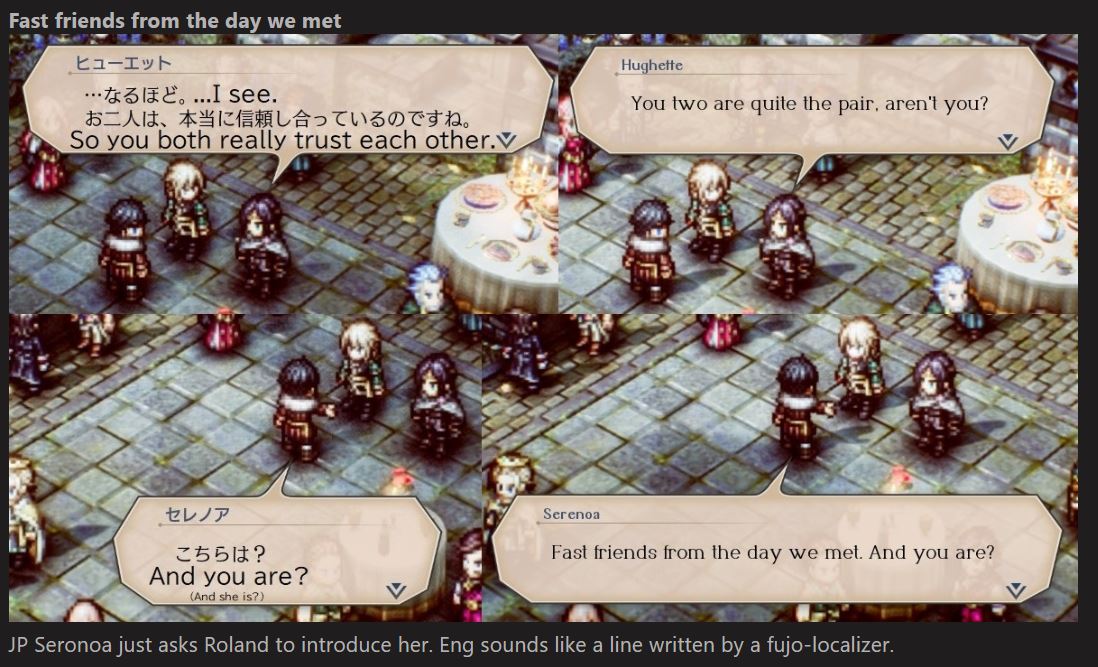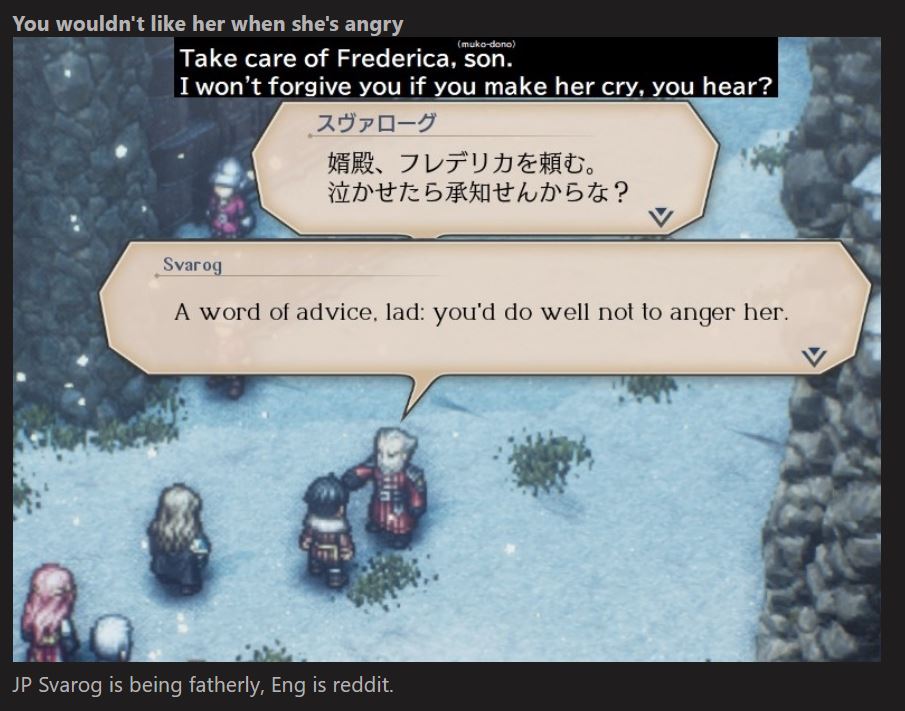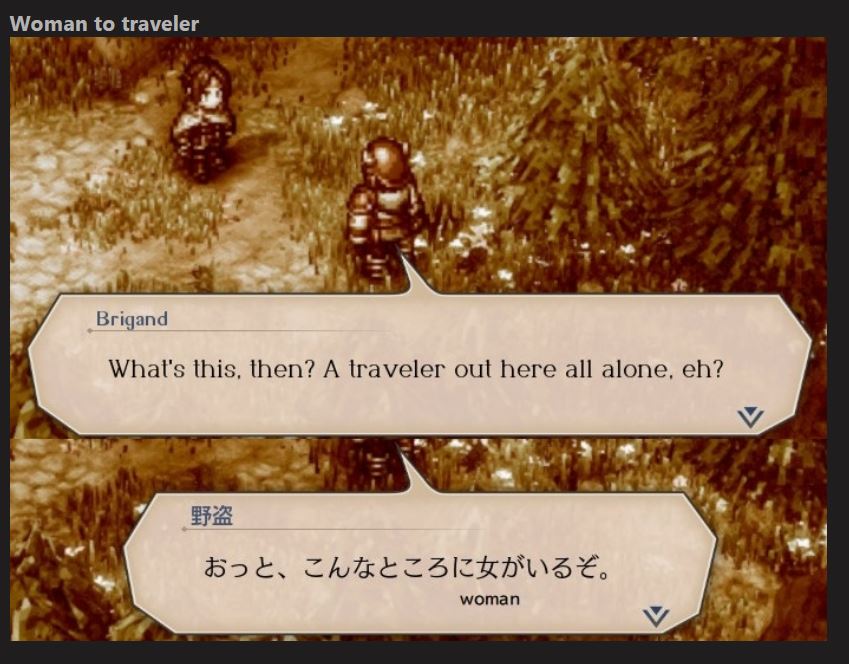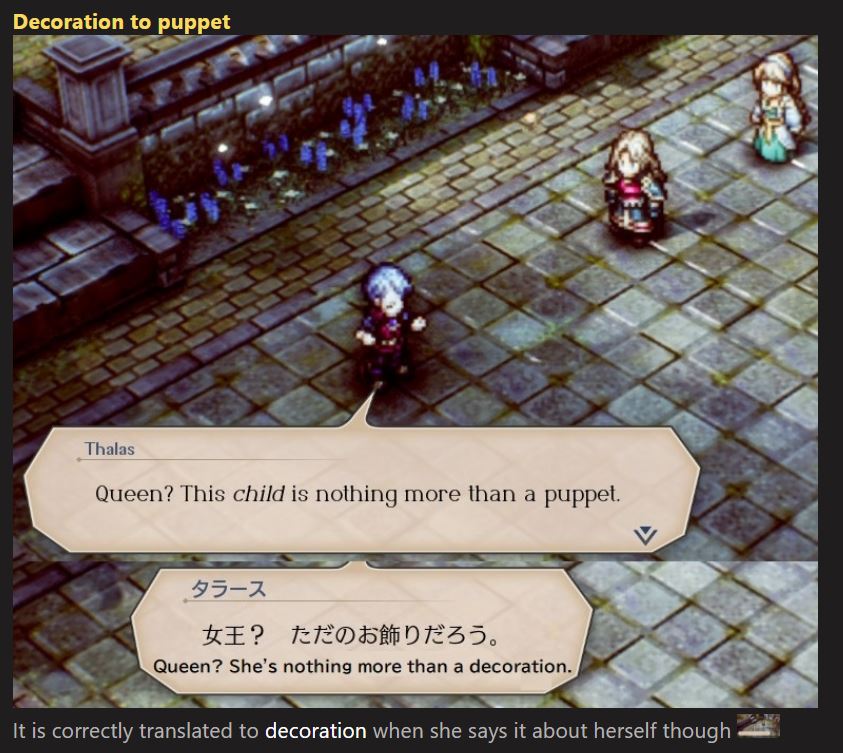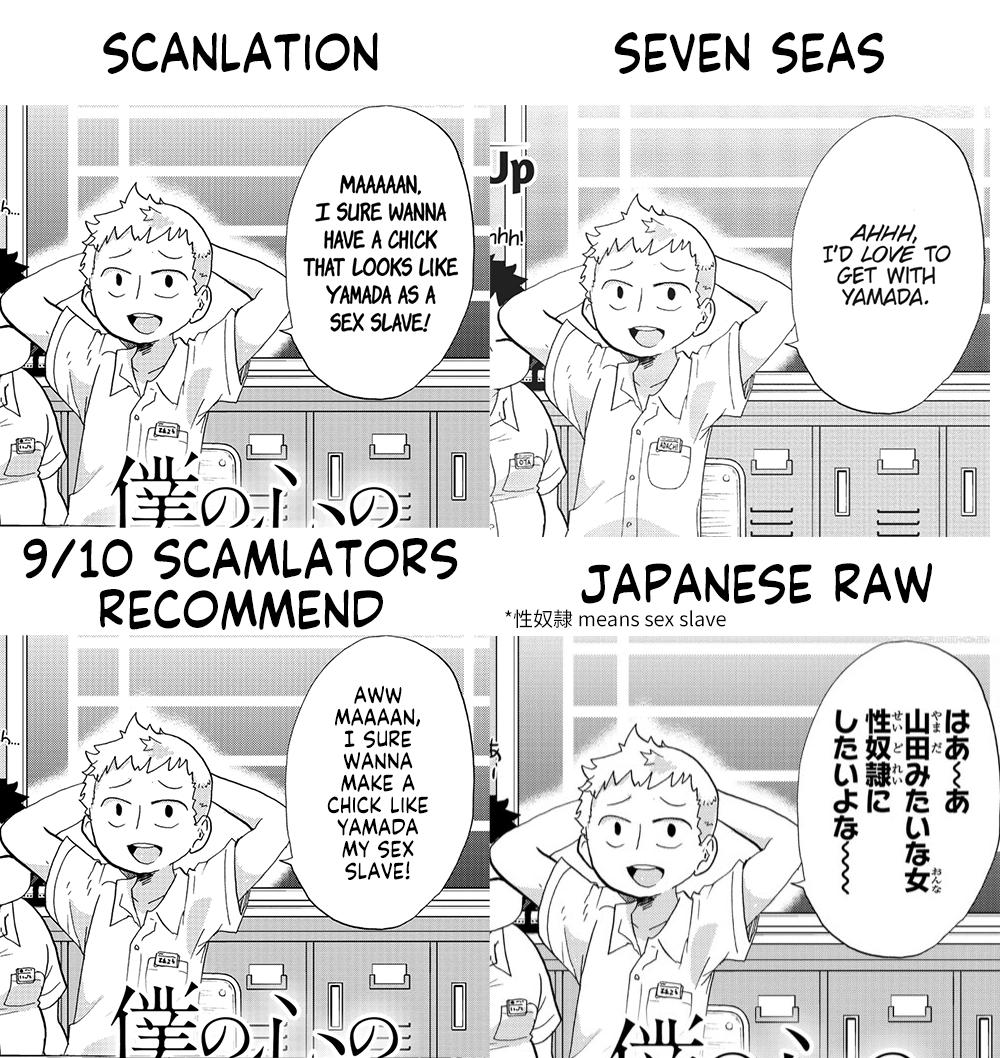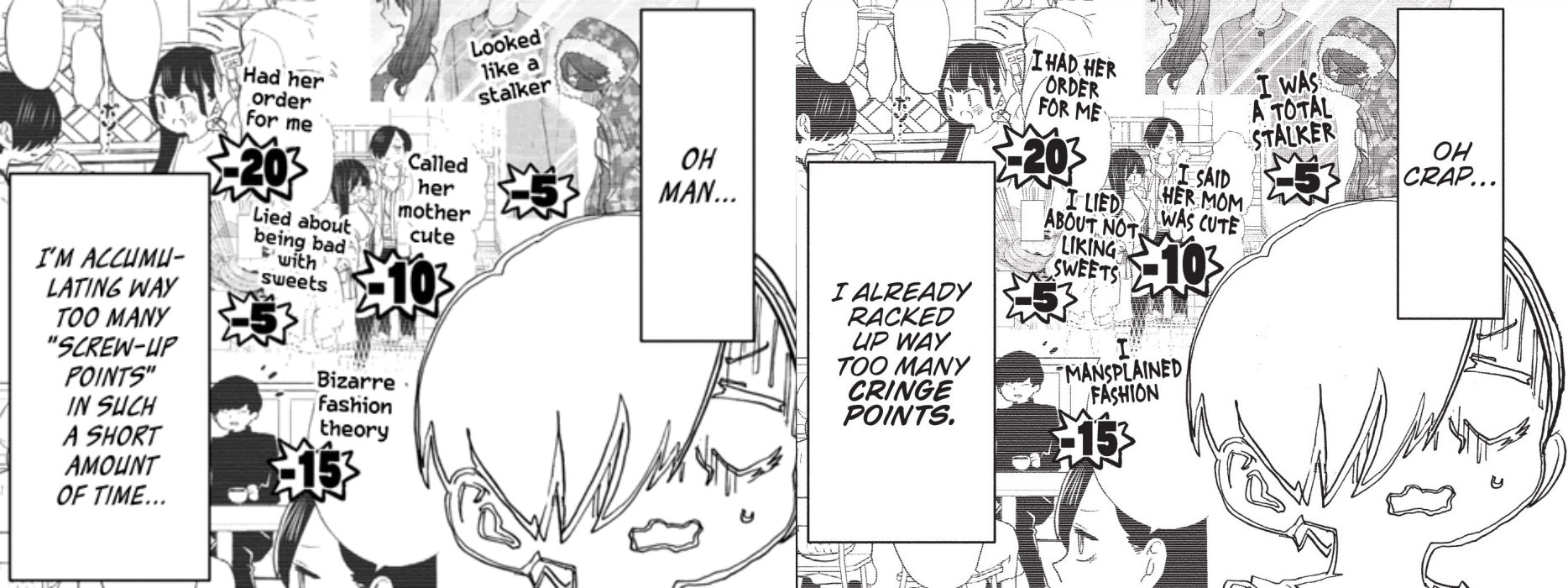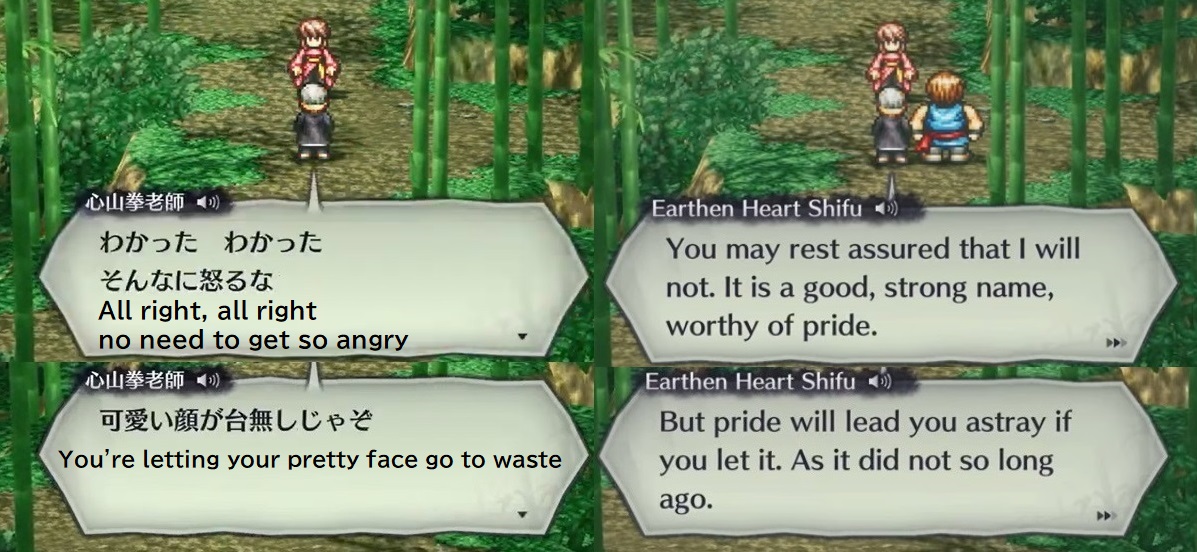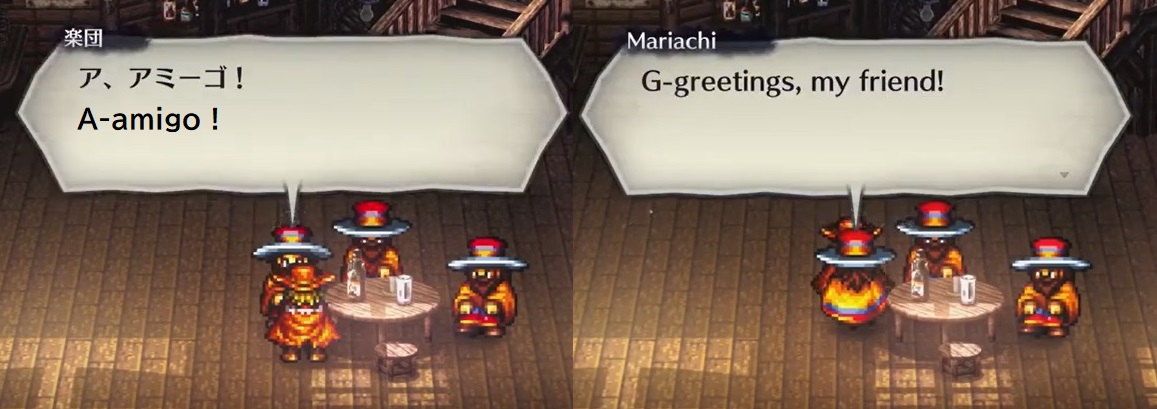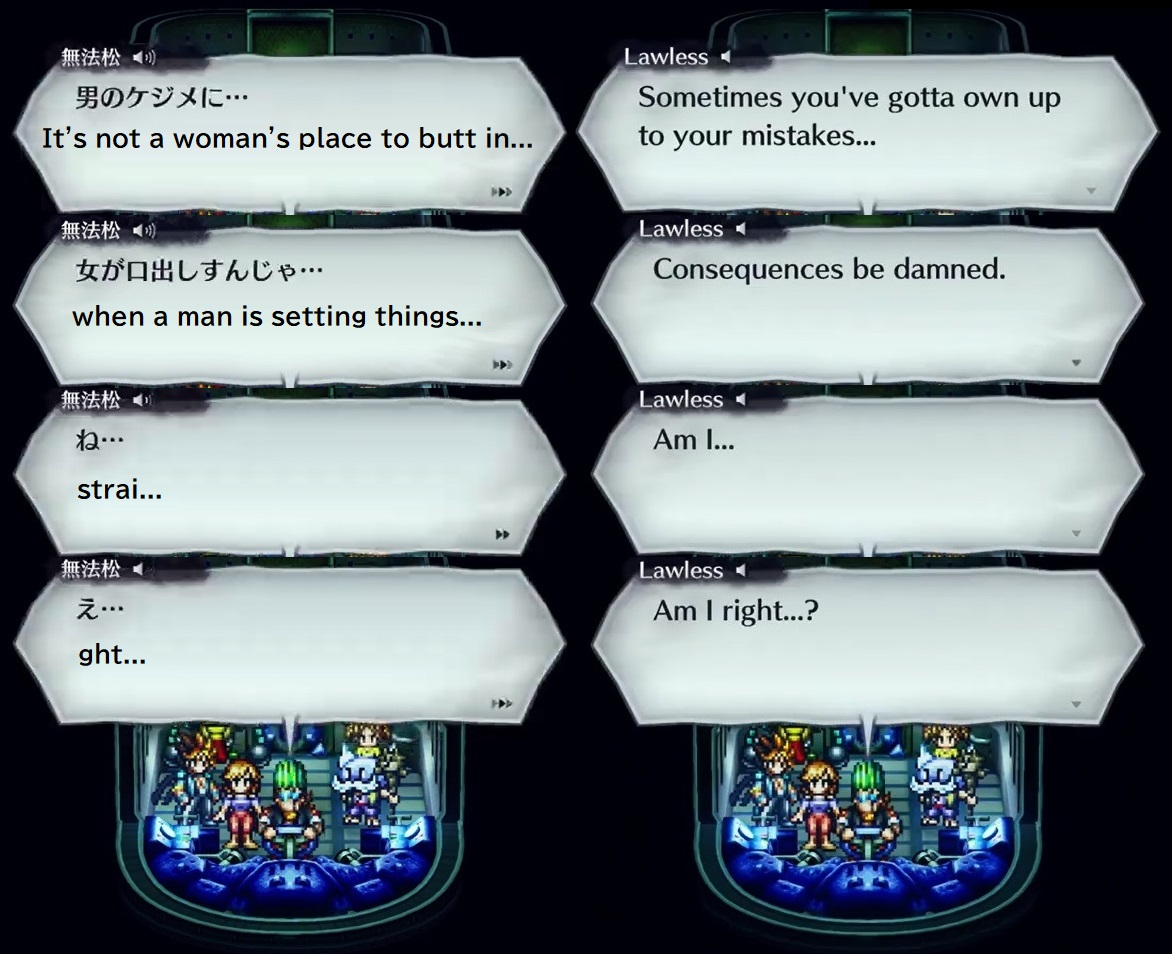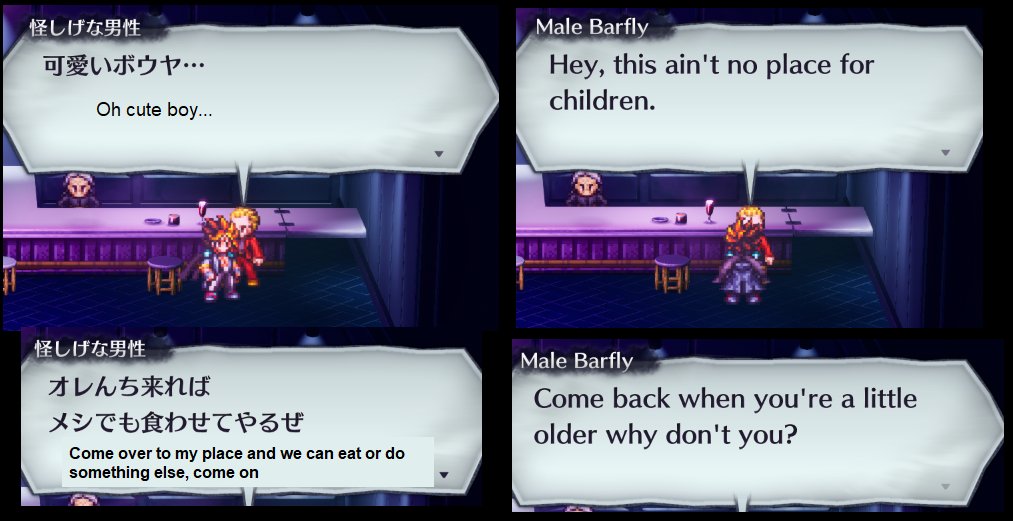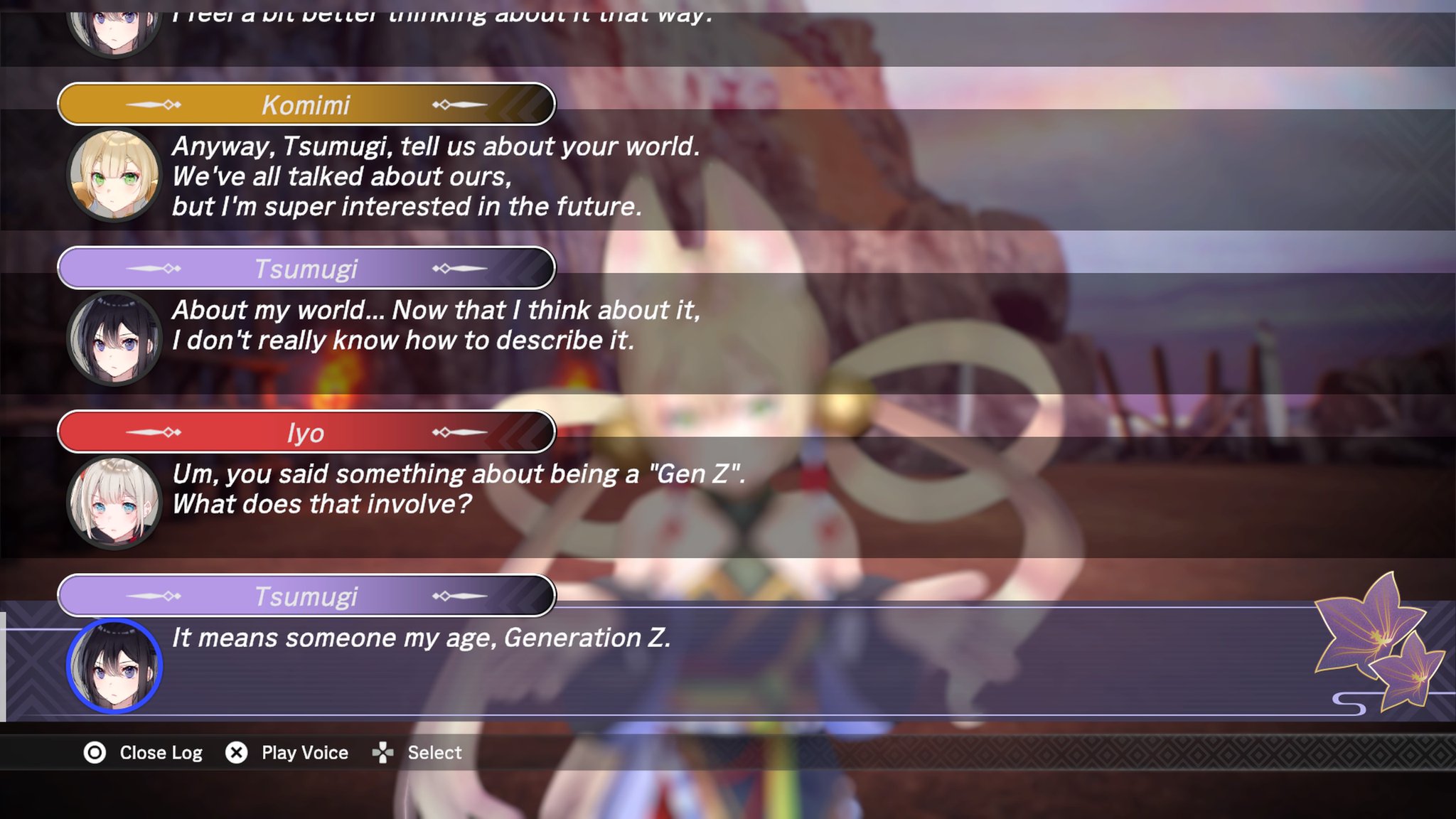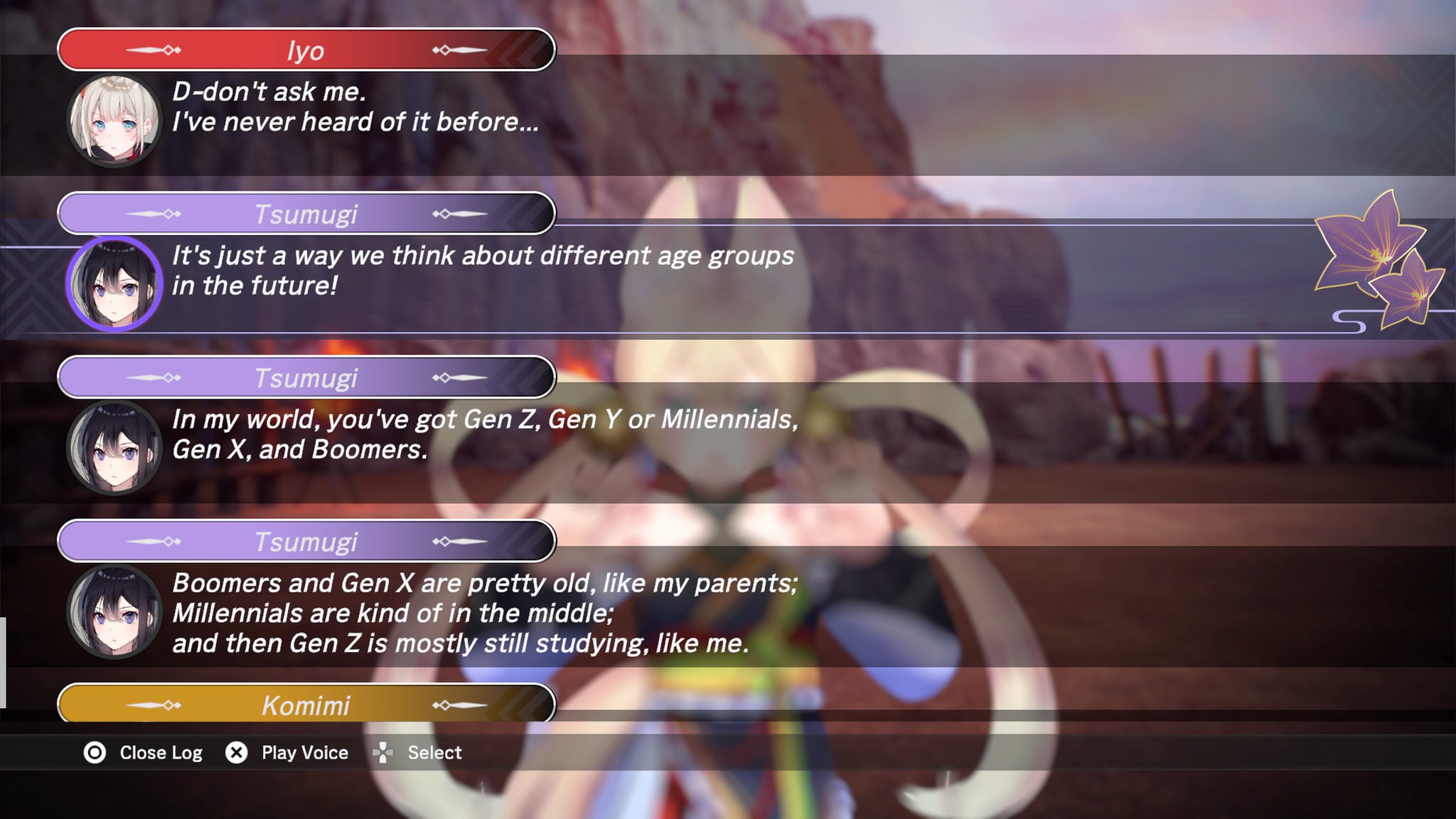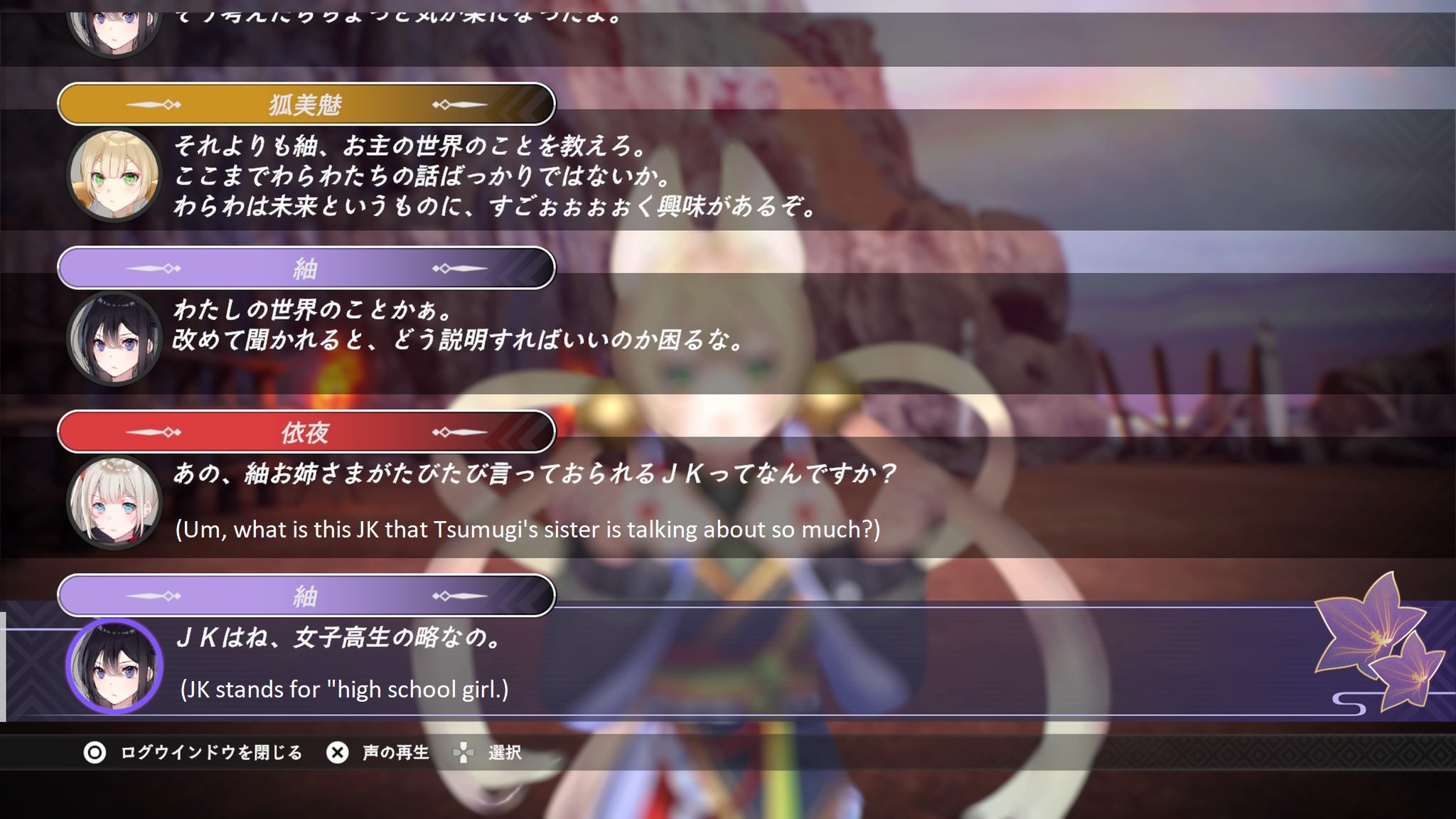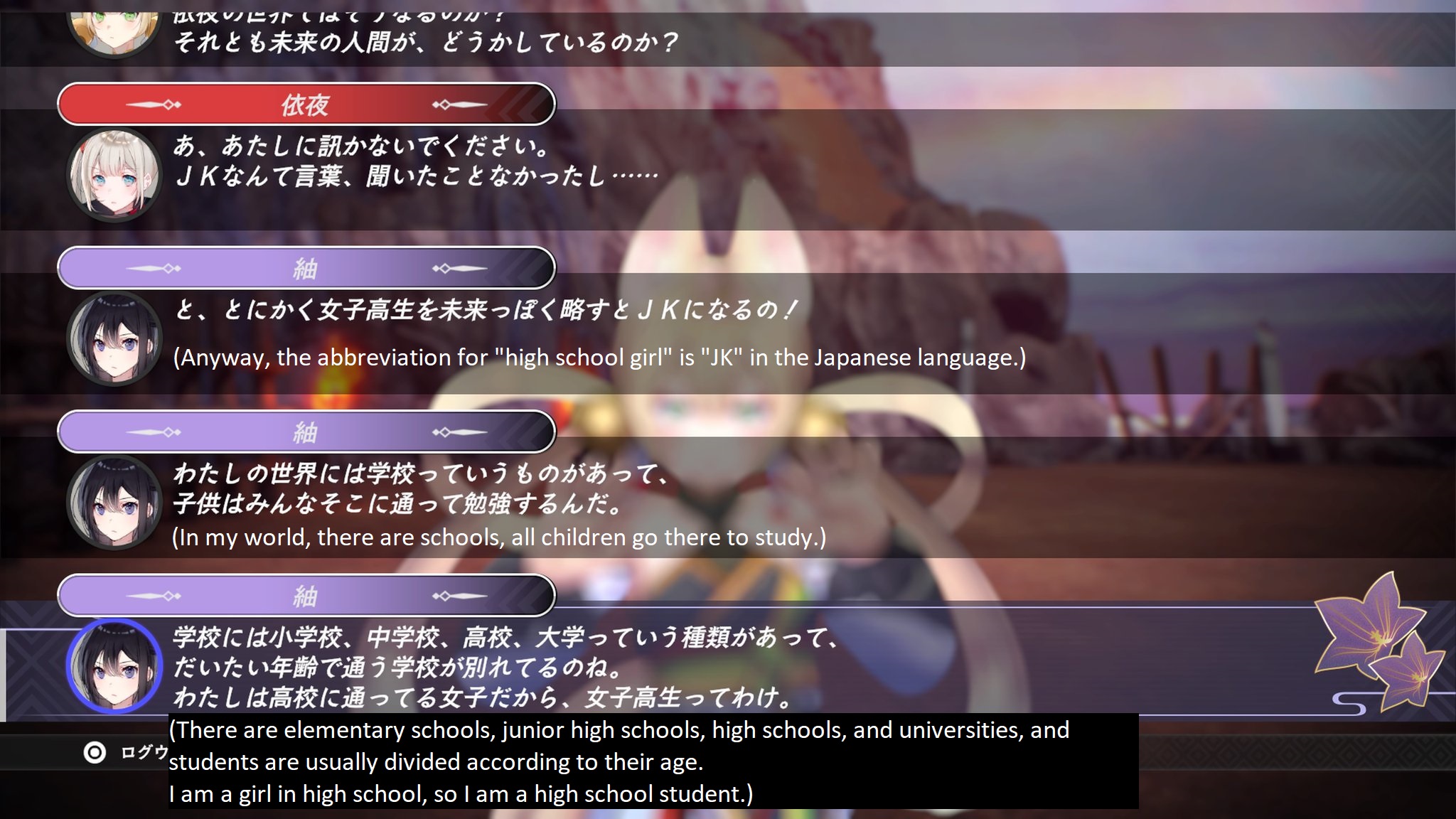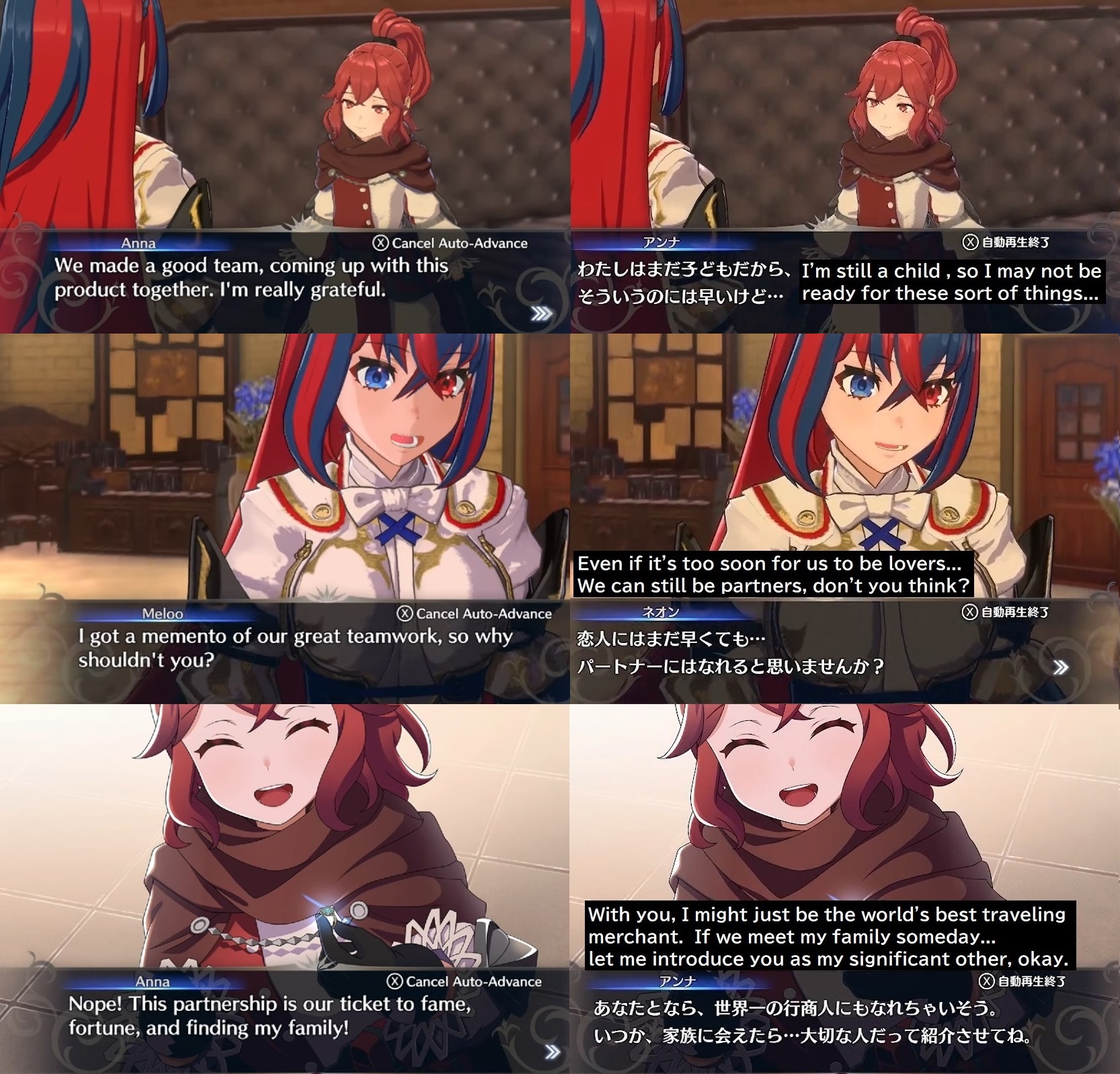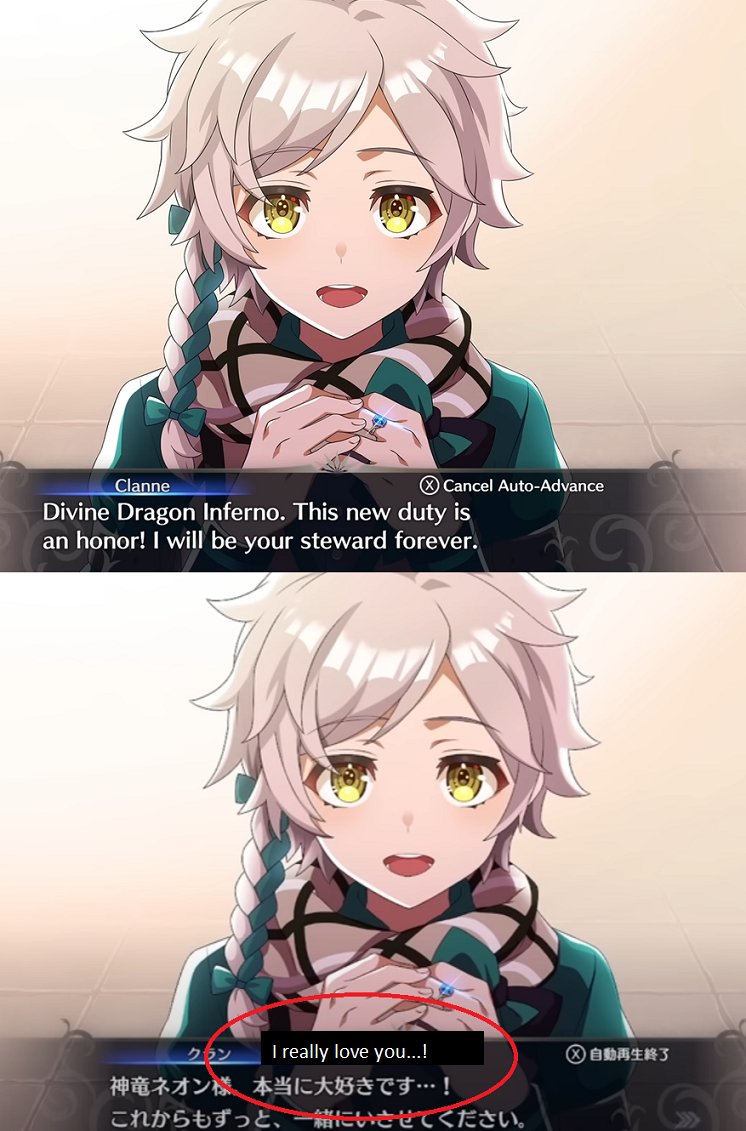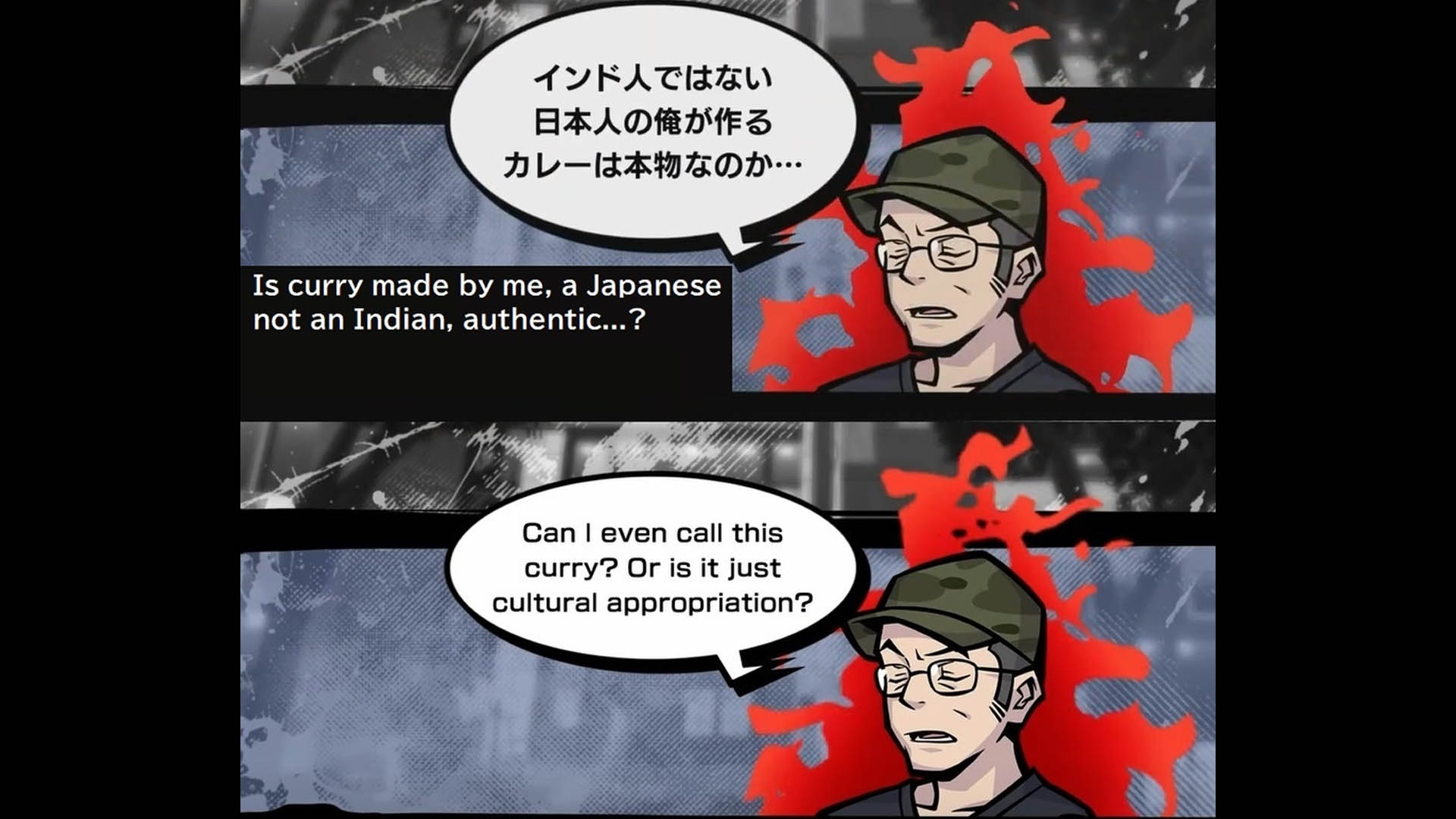
Many online are unaware just how badly English localizations of both anime and games have been for the past 8+ years, and many instances will be provided as an example.
For those not aware, localizations of anime and games in the past decade or so have been catastrophically awful, with localizers often mistranslating lines horribly. On many occasions, localizers have also been known to insert politics that weren’t present in the original Japanese, or even rewrite lines for the sake of “being funny”.
More recently, localizations have even been eliminating gendered words entirely (mostly with remakes of older games), and worse yet, even the Japanese versions have been including these changes, such as with the Chrono Cross remaster (example provided further down below).
The changes are no doubt a result of the “rise” of western-influenced feminism, where any insults directed towards a female character is “offensive” and removed.
Perhaps the best starting point would be with the English localization of anime Prison School from 2015, where one line was completely rewritten (click the links for more information on each instance) to include a reference to Gamergate:
It was said the line was thought up by Funimation writer Tyson Rinehart, who later said the following on Twitter: “If you think r**e threats against women in gaming are acceptable, I’m glad my script pissed you off. #PrisonSchool #itwasjustonelineyounerds”.
Funimation played a large role in the several incidents that followed this one.
The English localization of Hajimete no Gal was tampered with to include internet lingo while insulting light novel readers, and as can be expected, this isn’t what was said in the original Japanese version:
Miss Kobayashi’s Dragon Maid is also a well-known localization disaster:
The English dub of Demi-chan wa Kataritai inserted a line about “SJWs”:
Here’s a suspect translation in Legend of Zelda: Breath of the Wild:
Tokyo Xanadu is notorious for its awful localization:
Fire Emblem Fates is equally notorious in regards to how butchered the localization is – only a few examples have been provided:
Azure Striker Gunvolt inserted pronoun nonsense in its original translation:
An example of localizers bragging about rewriting games:
Crunchyroll Games removed a feature in the English version of Danmachi: Memoria Freese where you could “touch” the female characters, and those in charge claimed the removal wasn’t censorship, and that it was a matter of “what is and isn’t appropriate for an English audience”:
Nippon Ichi Software America is also highly infamous for having awful localizations and in general, for poorly handling their games:
Another important precursor and explanation behind Sony’s relentless censorship was when a spokeswoman clarified it was the “rise of the #MeToo movement” that prompted the company to increase censorship towards games with sexual content depicting characters that seem underage.
Another absurdity wrought by Funimation is when they changed the English subtitles for anime Hensuki (full name “Kawaiikereba Hentai demo Suki ni Natte Kuremasu ka?“), transforming the word “lolicon” into “pedophile”, when “lolicon” is explicitly used to refer to those with a penchant for fictional underage characters (this is particularly bizarre as they use the word “lolita” later on):
Funimation continued to do this with its English-subtitled versions of Bishounen Tanteidan, Tensei shitara Ken Deshita, and 4-nin wa Sorezore Uso o Tsuku, and Dark Gathering also turned “lolicon” into “problematic age gap”:
Established translators have mentioned that translating “lolicon” into “pedophile” is dangerous:
The localization team behind Trails of Cold Steel III previously admitted to censoring dialogue on a livestream:
Moderators on the game’s Steam forums were quick to lock any threads asking about potential censorship.
In an interview, the localization team behind Steins;Gate: My Darling’s Embrace noted that they try not to offend Western audiences with “mean-spirited/bigoted text”:
Luka’s Steins;Gate: My Darling’s Embrace route seems like it would be one that could be difficult to approach. How did you ensure that the writing in it came together as well it did and was sensitive to his identity? Were you concerned about how his storyline would be received?
Elliot Gay (Editor): So I actually handled Luka’s route in Darling, and yeah, I kind of knew going in that it would be difficult. The problem you run into with characters like Luka is that you’ll have comments in the JP script that aren’t meant to be read as offensive or problematic, but that read as such in English. Making the reader feel that way is not the intent of the Japanese in those cases, so the issue is how to find words that carry the same meaning without all the unnecessary, mean-spirited/bigoted baggage they might carry in English.
Luka is a wonderful, wonderful character, and I truly felt his route in My Darling’s Embrace was one of the more touching ones, so I did a lot of talking with non-binary friends and family about language and what was concerned the proper way to phrase certain things. I think there’s always a concern over how storylines like his will be received, but I had faith in the original Japanese script.
[…]
What sorts of materials, research, and outreach did you have available and conduct to ensure everyone sounded in character and the glossary references stayed true to the series’ lore?
Elliot Gay: Truth be told, because the games up until that point had jumped around a bit in terms of publishers out west, getting our hands on materials was more difficult than you’d expect. As such, Kris and I made it a point to go back through the original Steins;Gate and 0, compare notes between the two to see what was consistent and inconsistent, and then try to stick to the prevailing loc choices. There were some cases where there were requests from up top to change things from the original localizations as well, but on the whole, we tried to stick to phrasing and localized lore that already existed as much as humanly possible.
Persona 5 Royal, which was a remake for Persona 5, had scenes involving homosexual males, and because westerners deemed them “offensive”, Senior Project Manager Yu Namba was prompted to note that “some problematic dialogue from the original version of Persona 5 has been changed”.
Sentai Filmworks changed a female character’s remark in the English dub of To Love-Ru to instead accuse a male character of being “misogynistic”:
Funimation’s English localization of Kono yo no Hate de Koi wo Utau Shoujo YU-NO changed the dialogue to instead have a female character calling the protagonist a misogynist:
The original Japanese version of the scene, which doesn’t include any words implying “misogyny”, nor of the male calling the female “sweet cheeks”:
A localizer that worked on the visual novel The House in Fata Morgana ended up transforming the word “tsundere” into “fragile male ego”, which is not accurate by any means.
A “tsundere” is a type of person who is initially cold and aggressive towards people, but is later shown to have a warmer and sweeter side. The change was fully supported by MangaGamer and developer Novectacle.
Kaguya-sama wa Kokurasetai‘s English subtitled versions of episode five contained two scenes mentioning “social distancing”, lines that were not in the original Japanese:
Aniplex would later rectify these subtitles.
Adult game Magicami was changed drastically in its English localization, as there were grammar errors, a lack of consistency with pet names, streamer slang, and the non-consensual scenes were changed so that the girl likes it from the start (as opposed to later in the scene):
A developer via the game’s Discord addressed the matter:
The statement about changes being required due to “laws and regulations not applicable to the Japanese version” is nonsensical as several adult games with non-consensual scenes have been published in English before.
The English-subtitled version of Bokutachi wa Benkyou ga Dekinai inserted words such as “woke”, “P.C.” and “virtue signaling” despite the original Japanese audio not saying anything of the sort:
Fate/Grand Order‘s English version butchered Osakabehime, a character who often drops otaku terminology during her speech:
Higurashi no Naku Koro ni Gou‘s English-subtitled version from Funimation altered Satoko’s famous “nii-nii” (a pet name for her brother) into “big brudder”. “Nee-Nee” was also translated into “big shishter”. The decision was eventually walked back.
Netflix’s Bastard!! changed a slew of dialogue in its English dub, pushing a feminist narrative and removing any dialogue that could be deemed “offensive to women”:
Crunchyroll’s English subtitles for Onii-chan wa Oshimai! were also criticized for their removal of gendered language:
One localizer went on a tirade defending their use of “sus” and “cringe” in some shows:
The English localization of 13 Sentinels: Aegis Rim rewrote a character to be “non-binary”:
The title is also rife with other translation errors.
Collection of SaGa Final Fantasy Legend had a trigger warning pop up on game start, saying the game has been “replicated in its original form”, yet that there were also changes to “meet evolving cultural and social norms”:
Some of the changes made to the game:
Crunchyroll’s English translation of Princess Connect! Re: Dive changed “onii-chan” (“big brother”, or used towards any older male by a younger person) to “Mr. Nice Guy”, and also inserted nonsensical memes:
Seven Seas Entertainment, a company that translates light novels into English, was criticized for their odd localization of Classroom of the Elite and Mushoku Tensei.
Anime SK8 the Infinity had the word “non-binary” shoved into its English dub, despite a lack of such a word in the Japanese:
Trails of Cold Steel 3‘s English translation was absolutely abysmal:
NEO: The World Ends With You‘s English translation is equally horrid, with mentions of “cultural appropriation”, capitalism bashing, and nonsensical memes that were not present in the original:
Super Robot Wars 30 contained pronoun propaganda:
The Chrono Cross remaster removed several instances of gendered language in both the English and Japanese versions of the game, no doubt as a means of removing dialogue deemed “offensive to women”:
In the Japanese version, there was an instance where “めめしい” (memeshii, which can mean “effeminate” or “sissy”) was swapped out for “器が小せえ” (utsuwa ga chiisae, which can mean “intolerant” or “narrow-minded”).
Memeshii, also written as “女々しい”, uses the kanji for “woman”, possibly being yet another reason why the word was removed.
Triangle Strategy had its themes, tones, and characterization altered, with instances that could be deemed “offensive to women” also changed:
The second season of Tiger and Bunny had a male character apologize to his female partner, and accept her as an equal and not someone who needs protection because she’s a woman:
Here’s the English dub in comparison:
The Mato Seihei no Slave manga had the word “slave” omitted from its English name, instead being named “Chained Soldier” for the west.
Boku no Kokoro no Yabai Yatsu removed the word “sex slave” whilst adding in ones such as “mansplain”:
The Osananajimi wo Onnanoko ni Shiteshimatta Hanashi (Ototsuku) manga’s English localization rewrote a male character as a transgender female, when he only dressed like a female.
The Live a Live remake’s English version was also sanitized of anything that could be deemed offensive:
Chaos;Head Noah‘s developers wrote a long list of excuses instead of actually properly translating the game.
Samurai Maiden‘s English translation talked about boomers and “Gen Z”, when the original was merely talking about JKs (high school girls):
The translation has since been fixed.
Fire Emblem Engage rewrote a lot of dialogue, eliminating almost all instances of romance:
Numerous closely-guarded secrets concerning the localizers were also revealed.
Criminal Border replaced the word “loser” for “incel”, and inserted Big Bang Theory memes.
Bleach: Thousand-Year Blood War removed dialogue concerning a character smelling like semen in the subtitled Disney Plus version, and also removed it in the English dub.
Here’s the censored Disney Plus subtitled version:
The uncensored original Japanese version, which has audibly different speech:
There are many more incidents of localizer bastardizations not included here, and there are likely some that have gone unnoticed too.
The “politically correct” invasion of the entertainment medium effected not only TV, movies, and comics, but video games and anime as well, and judging by the sheer abundance of examples, this plague might not die down anytime soon.
